
Primary goal of attending an international conference is to present a paper to the experts and influencers. It gives you a platform to exchange your interest-related thoughts, paving the way for possible future collaborations.

Use this platform to build connections with an elite group of wise men and women to enhance your intellect. Young entrepreneurs, this is a great platform to connect with your peers.

Knowledge is Power. Knowledge teaches skills. Skills define excellence. Use this platform to become cognizant of your interest area to achieve excellence in your domain.

Attending a conference give you opportunity to get your abstract or paper published in conference proceedings

Meet and greet a myriad of industry professionals and academia experts with common interest. Every meal will be an opportunity to meet and interact with fellow researchers, attendees and experts.

Expand your professional competency and learn useful tips and tricks of your industry in our skill-building workshops.

Explore insights on recent advancements, new equipment, new techniques, and unpublished data, learn from thought-leaders and get to network with a great line up of speakers.

Our exhibits floor offers the attendees with a dynamic display of the latest products with cutting-edge technology.

Investing in you is the best investment. Peers Alley conferences give the patrons with a feeling of the serendipity of real learning, skill development in strategic workshops, networking and start-up opportunities, thus, is value for money.

Attending the conference gives you much needed break from your regular duties. It also allows you to explore new cities, culture and meet new people. You will feel energized and rejuvenated to return to the university and continue with the job after attending the conference.
Conferences are vital forum for academic researchers and business leaders. "It involves multiple presentations, interactive breakout sessions, hands-on product demonstrations and unrivalled networking opportunities".
We have invited some of the world's most sought-after keynote speakers, experts, brand ambassadors, and industry leaders to share their thoughts and ideas with our conference guests.
Register Now
This 2ndMH-PSYCHIATRY 2022 annual conference brings together psychiatrists, primary care physicians, clinicians, psychologists, educators, nurses, medical students and residents, physician assistants, addiction counsellors, social workers, medical educators, policymakers, public health researchers, allied health experts, students and industry professionals from around the world, providing them with a platform to report on, and discuss issues and scientific achievements relative to mental health and psychiatry worldwide.
This year's conference also provide a foundation for networking with prominent scientists and leaders from more than 35+ countries. We would like to take this opportunity to encourage you to attend and participate in this one-of-a-kind conference in order to benefit from the most recent scientific discoveries and milestones in the field of psychiatry and mental health.
The planning committee has designed a comprehensive program features the best in mental health and psychiatry.
about MH-PSYCHIATRY 2022 conference
The organizing committee is delighted to invite you to the "2nd GLOBAL Congress on Advances in Mental Health and Psychiatry” that will be held in Dubai, UAE on the 25th to 26th of October 2022 with the theme “Digital psychiatry and promising future for mental illness prevention; an overview of the novel treatments, challenges and opportunities”.
The future of psychiatry will likely be increasingly personalized, and patients may no longer need to go to a clinic for treatment. Now medical researchers can use the modern technologies to analyse individuals' DNA and identify specific genes that correlate with specific mental illnesses. Hormonal signals are also analysed, and brain scans are used to detect abnormalities. In fact through these developments, psychiatrists and doctors can pinpoint the causes of mental illnesses and tailor treatment plans to each patient. This enables easier diagnosis on a larger scale.
This event is critical in bringing some important studies of computer-based interventions designed to prevent or treat mental health disorders, which include
• Using technology to treat disorders such as schizophrenia, depression, anxiety, autism, suicide, trauma and HIV.
• Research into feasibility, efficacy, and effectiveness.
• More interventions for cognitive issues, illness management, behaviour, and health communication.
• Using mobile technology for a broader range of disorders, from mild depression or anxiety to schizophrenia and autism.
• Digital psychiatry has the potential to significantly alter future clinical practise and to augment the work of clinicians and researchers.
The meeting provides an excellent opportunity to update attendees on cutting-edge research and treatments that will shape future directions for basic, clinical, and translational research. In a relaxed and comfortable setting, the meeting will serve as a rostrum for dynamic interactions among leading senior scientists, researchers, clinicians and, most importantly, industry professionals from around the world.
We are convinced that the 2nd MH-PSYCHIATRY 2022 will be an amazing personal and professional experience for all attendees, and we hope to see you in Dubai, UAE.
Best regards,
MH-PSYCHIATRY 2022
Organizing Committee
Peers Alley Media1126 59 Ave East
V5X 1Y9, Vancouver BC, Canada

University of Padua, Italy

Psychiatric University Hospitals Basel (UPK), Switzerland

Pontificia Universidad Católica de Chile, Chile

Icahn School of Medicine at Mount Sinai, USA
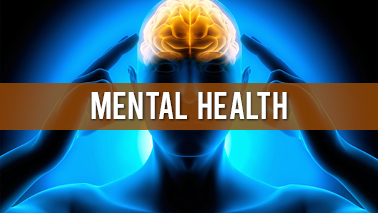
Mental health similar to our cognitive, behavioral, and emotional state - it is all regarding how we think, feel, and behave. The word 'mental health' is sometimes used to mean an absence of a mental disorder
Psychological well-being issues may emerge because of stress, dejection, discouragement, nervousness, relationship issues, demise of a friend or family member, self-destructive contemplations, distress, fixation, ADHD, self-hurt, different temperament issue, or other dysfunctional behaviors of shifting degrees, just as learning handicaps.
Mental Health Conferences inviting workshop proposals on Personality disorders, which covers Paranoid personality disorder, Schizotypal personality disorder, Schizoid personality disorder, Histrionic personality disorder, Antisocial personality disorder (ASPD), Borderline personality disorder (BPD) and Obsessive compulsive personality disorder (OCDP).
Psychiatry Conferences welcoming short course proposals on Personality disorders.
Tags
Psychiatry Conferences 2022 Middle East
Pharmacology Conferences
Child Psychology Conferences
Mental Health Association Conferences
Human Resilience Conferences
Counselling Psychology Conferences
Mental Health Rehabilitation Conferences
Neurology Conferences
Psychology Conferences 2022 Middle East
Psychotherapy Conferences
Bipolar Disorder Conferences
Sleep Disorder Conferences
Pharmacotheraphy Conferences
Psychology Conferences 2022 Asia
Psychosis Conferences
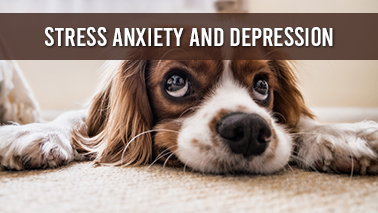
Nervousness is a typical and regularly sound feeling. Be that as it is, when an individual consistently feels unbalanced degrees of uneasiness, it may turn into a medicinal issue.
The American Psychological Association (APA) characterizes uneasiness as "a feeling described by sentiments of strain, stressed considerations and physical changes like expanded pulse".
Mental Health Conferences inviting workshop proposals on Schizophrenia, which covers Disorganized type, Catatonic type, Undifferentiated type and Residual type.
Psychiatry Conferences welcoming short course proposals on Schizophrenia.
Tags
Addiction Conferences
Mental Health Conferences 2022 Europe
Depression Conferences
Bipolar Disorder Conferences
Women Psychology Conferences
Positive Psychology Conferences
Mental Illness Conferences
Mental Health Conferences 2022 USA
Mental Health Association Conferences
Human Resilience Conferences
Mental Health Rehabilitation Conferences
Counselling Psychology Conferences
Psychosis Conferences
Neurology Conferences
Schizophrenia Conferences
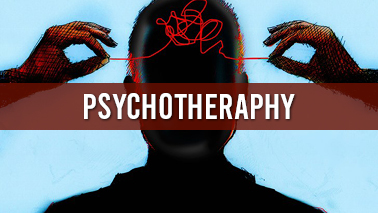
Psychotherapy is a common term for research based treatment of mental health issues based on new drug. It covers number of schools, such as psychoanalysis, cognitive behavioral therapy, transpersonal psychotherapy, and dialectical behavioral treatment. Group therapy involves any type of therapy that takes place in a setting involving multiple people. It can include psychodynamic groups, expressive therapy groups, and problem-solving and psychoeducation groups.
Mental Health Conferences inviting workshop proposals on Psychosis & Psychotic disorders, which covers Functional psychosis, Affective psychosis, Organic psychosis, Brief psychotic disorder, Schizophreniform disorder, Schizoaffective disorder, Shared induced psychotic disorder and Atypical psychosis.
Psychiatry Conferences inviting short course proposals on Psychosis & Psychotic disorders.
Tags
Behavioral Health Conferences
Depression Conferences
Adolescent Medicine Conferences
Pharmacotheraphy Conferences
Psychology Conferences 2022 Middle East
Psychiatry Conferences 2022 USA
Psychology Conferences 2022 Asia
Psychology Association Conferences
Psychiatry Association Conferences
Child Psychology Conferences
Mental Health Conferences 2022 USA
Schizophrenia Conferences
Psychiatry Conferences 2022 Middle East
Mental Health Conferences
Mental Health Conferences 2022 Middle East
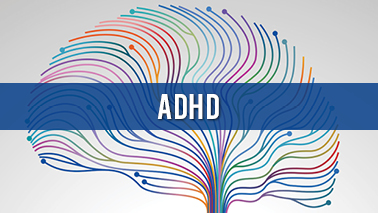
Attention deficit hyperactivity disorder (ADHD) influence children and teens and can continue into maturity. ADHD is the most commonly treated mental disorder of children. Children suffering with ADHD may be hyperactive and unable to control their impulses. Or they may have difficulty in paying attention. These behaviors interfere with school and home life.
Mental Health Conferences inviting workshop proposals on Neurotic disorders, which covers Phobic disorder, Obsessive compulsive disorder, Hysterical neurosis, Post - traumatic stress disorder, Hyper ventilation syndrome.
Psychiatry Conferences inviting short course proposals on Neurotic disorders.
Tags
Schizophrenia Conferences
Human Resilience Conferences
Adolescent Medicine Conferences
Mental Health Rehabilitation Conferences
Mental Health Conferences 2022 Asia
Psychology Conferences 2022 Middle East
Pharmacotheraphy Conferences
Counselling Psychology Conferences
Bipolar Disorder Conferences
Alzheimer's disease Conferences
Mental Health Association Conferences
Behavioral Health Conferences
Women Psychology Conferences
Child Psychology Conferences
Mental Health Conferences 2022 Europe
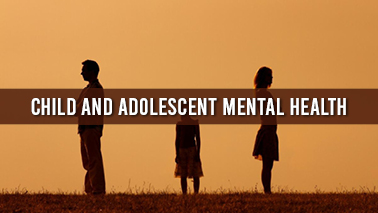
Adolescence is a crucial period for developing and maintaining social and emotional habits important for mental well-being. These include adopting healthy sleep patterns; taking regular exercise; developing coping, problem-solving, and interpersonal skills; and learning to manage emotions. Encouraging environments in the family, at school, and in the wider community are also important. Worldwide, it is estimated that 10–20% of adolescents experience mental health conditions, yet these remain undertreated. Signs of poor mental health can be overlooked for several reasons, such as a lack of subject or awareness about mental health among health y workers, or stigma preventing them from seeking help.
Mental Health Conferences inviting workshop proposals on Emergency psychiatry, which covers attempted suicide, Stupor, Excitement (violence).
Psychiatry Conferences inviting short course proposals on Emergency psychiatry.
Tags
Psychiatry Conferences 2022 Asia
Addiction Conferences
Child Psychology Conferences
Psychology Conferences
Mental Illness Conferences
Bipolar Disorder Conferences
Pharmacotheraphy Conferences
Psychiatry Conferences 2022 USA
Behavioral Health Conferences
Psychosis Conferences
Psychiatry Conferences 2022 Middle East
Mental Health Conferences 2022 USA
Psychotherapy Conferences
Psycho Education Conferences
Women Psychology Conferences
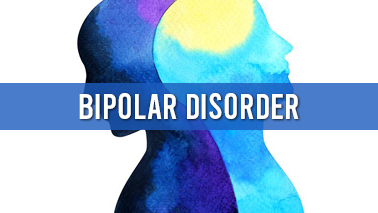
Bipolar disorder is a mental illness marked by uttermost shifts in mood. Symptoms can incorporate an extremely elevated mood called mania. They can also include episodes of depression. Bipolar disorder is also called as bipolar disease or manic depression. Bipolar disorder is treated with medications, such as mood stabilizers and antipsychotics, as well as with psychotherapy. Mood stabilizers may improve mood disturbances, and include lithium and certain anticonvulsants such as valproate and carbamazepine.
Mental Health Conferences inviting workshop proposals on Mental health emergency care, which covers Hotline, Walk in clinic, Home visits, Self-help groups, Suicide prevention centers.
Psychiatry Conferences inviting short course proposals on Mental health emergency care.
Tags
Mental Illness Conferences
Schizophrenia Conferences
Psychology Conferences 2022 USA
Psychiatry Conferences 2022 Asia
Addiction Conferences
Psychology Conferences 2022 Asia
Pharmacology Conferences
Mental Health Conferences 2022 Asia
Psychiatry Conferences 2022 Middle East
Mental Health Association Conferences
Psychosis Conferences
Depression Conferences
Positive Psychology Conferences
Mental Health Conferences 2022 Europe
Mental Health Conferences 2022 USA
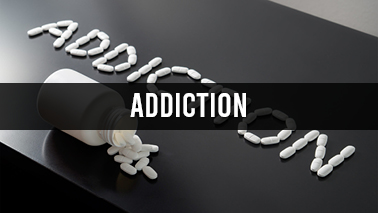
Addiction is a compound disease, often chronic in nature, which affects the functioning of the brain and body. It also causes serious damage to families, relationships, schools, workplaces and neighborhoods. The usual sign of addiction are extreme loss of control, continued use of serious consequences, preoccupation with using failed attempts to quit, tolerance and withdrawal. Addiction can be successfully prevented, treated and managed by healthcare professionals in combination with family or peer support. Some People abuse substances such as drugs and alcohol for varied and difficult reasons. Substance abuse may begin in childhood or the adolescent years. Advance recognition of drug or alcohol addiction increases chances for successful treatment.
Mental Health Conferences inviting workshop proposals on Sleep disturbances, which covers Insomnia, REM sleep Behavior Disorder, Circadian Rhythm Sleep Disorders, Non-24-Hour Sleep-Wake Disorder, Periodic Limb Movement Disorder, Shift Work Sleep Disorder.
Psychiatry Conferences inviting short course proposals on Mental Sleep disturbances.
Tags
Psychology Conferences
Mental Health Conferences 2022 USA
Sleep Disorder Conferences
Psychology Conferences 2022 Middle East
Mental Health Conferences 2022 Asia
Women Psychology Conferences
Mental Health Rehabilitation Conferences
Human Resilience Conferences
Psychosis Conferences
Psychiatry Conferences 2022 Middle East
Geriatric Psychiatric Conferences
Psychiatry Conferences 2022 USA
Mental Health Conferences 2022 Europe
Addiction Conferences
Psychiatry Conferences 2022 Asia
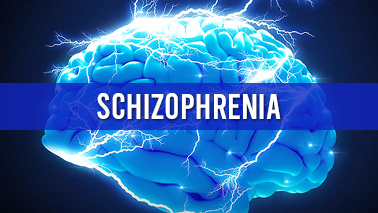
Schizophrenia is a mental illness recognized by abnormal functioning, curious speech, and decreased capacity to understand reality. Other symptoms may include false beliefs, confused thinking, hearing voice that does not exist, reduced social engagement and emotional expression, and lack of motivation. Persons with schizophrenia are often have additional mental health problems such as anxiety, depression. Symptoms typically come slowly begin in young adulthood, and in heavier cases never resolve.
Schizophrenia in adults has been approved by the U.S. Food and Drug Administration. The medicine Vraylar (cariprazine), is a capsule should be taken once a day.
brain chemistry and structure
Mental Health Conferences inviting workshop proposals on Personality disorders, which covers Paranoid personality disorder, Schizoid personality disorder, Schizotypal personality disorder, Antisocial personality disorder (ASPD), Borderline personality disorder (BPD), Histrionic personality disorder and Obsessive compulsive personality disorder (OCDP).
Psychiatry Conferences inviting short course proposals on Mental Personality disorders.
Tags
Psychotherapy Conferences
Mental Health Conferences 2022 USA
Mental Illness Conferences
Pharmacotheraphy Conferences
Human Resilience Conferences
Counselling Psychology Conferences
Child Psychology Conferences
Psychiatry Conferences 2022 Asia
Psychiatry Conferences 2022 USA
Psycho Education Conferences
Addiction Conferences
Psychology Association Conferences
Mental Health Association Conferences
Neurology Conferences
Mental Health Conferences 2022 Middle East
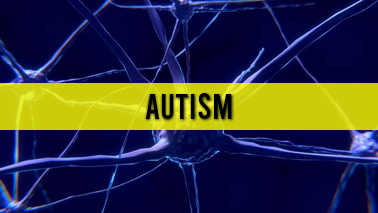
Autism is a compound neurobehavioral state that includes disability in social connection and developmental language and presenting skills combined with rigid repetitive behaviors. Since the range of symptoms this condition is now called autism spectrum disorder. It extends a large spectrum of symptoms, skills, and levels of impairment. ASD collection in severity from a handicap that somewhat limits an otherwise normal life to a devastating disability that may require institutional care. Autism is associated with a combination of genetic and environmental factors.
Tags
Mental Illness Conferences
Psychiatry Conferences 2022 USA
Mental Health Conferences 2022 USA
Psycho Education Conferences
Depression Conferences
Mental Health Conferences 2022 Asia
Psychology Conferences 2022 Middle East
Behavioral Health Conferences
Women Psychology Conferences
Adolescent Medicine Conferences
Psychiatry Association Conferences
Neurology Conferences
Counselling Psychology Conferences
Psychology Conferences 2022 USA
Psychotherapy Conferences
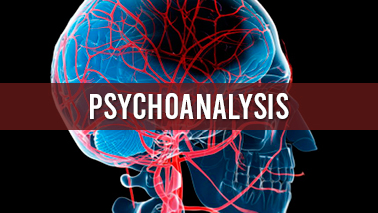
Therapy is a combative control and its sensibility as a science is challenged. in any case it stays a solid impact inside psychiatry, more so in certain quarters than others. The extent of specialists of Freudian analysis has declined as proof based medication has expanded the utilization of subjective social treatment. Psychoanalytic ideas are additionally generally utilized outside the helpful field, in zones, for example, psychoanalytic abstract analysis, just as in the examination of film, fantasies and other social wonders.
Tags
Psychology Conferences 2022 Middle East
Mental Health Conferences
Stress Conferences
Psychiatry Conferences 2022 Middle East
Mental Illness Conferences
Pharmacotheraphy Conferences
Psychotherapy Conferences
Depression Conferences
Positive Psychology Conferences
Counselling Psychology Conferences
Psycho Education Conferences
Sleep Disorder Conferences
Child Psychology Conferences
Schizophrenia Conferences
Alzheimer's disease Conferences
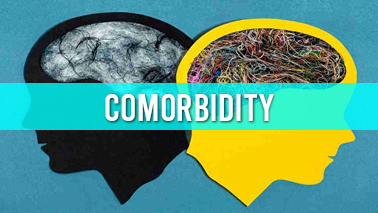
Comorbidities are when a person has more than one disorder. Comorbid (meaning co-existing) anxiety and depressive disorders are defined as a person who has both social anxiety disorder (SAD) and major depressive disorder (MDD).
Physical illness such as diabetes, cardiovascular disease, cancer, infectious diseases, and dementia are examples of comorbid conditions. Eating disorders, anxiety disorders, and substance abuse are examples of mental health illnesses that frequently show comorbidity.
Comorbidity in mental illness can refer to a condition in which a person obtains a medical diagnosis followed by a mental disorder diagnosis (or vice versa), or it can refer to a mental disorder diagnosis followed by another mental disorder diagnosis.
National epidemiological research of comorbid problems in mental health in Spain, observed almost half of the 7936 adult patients had several psychiatric disorders. Furthermore, according to the National Comorbidity Survey in the United States, 51% of patients with serious depression also had at least one anxiety disorder. Only 26% of them did not have any other mental health issues.
Comorbidity can be treated well with the help of healthcare professionals. When a social anxiety condition is left untreated for a long time, a person may develop depression and/or substance abuse as a result of the anxiety symptoms. So early detection and treatment of one ailment may help to prevent the emergence of comorbidities.
Coordination between primary care physicians and mental health experts is critical in preventing comorbid illnesses on a larger scale.
Tags
Psychiatry Conferences 2022 Asia
Psychology Conferences 2022 USA
Psychiatry Conferences 2022 USA
Psychology Conferences 2022 Asia
Geriatric Psychiatric Conferences
Mental Health Conferences 2022 USA
Psychology Conferences
Bipolar Disorder Conferences
Mental Health Conferences 2022 Asia
Psychology Association Conferences
Psychotherapy Conferences
Mental Health Conferences 2022 Middle East
Pharmacotheraphy Conferences
Human Resilience Conferences
Child Psychology Conferences
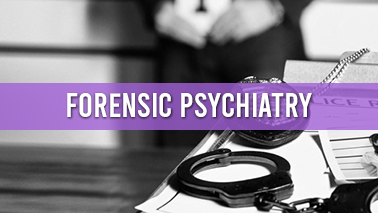
Forensic psychiatry is a subspecialty of psychiatry that assists mentally ill people who are a risk to the public. Mentally ill offenders in prisons, secure hospitals, and members of the community are assessed and treated. The specialisation also looks into the link between mental illness and criminal behaviour and works with law enforcement. Forensic psychiatrists work together with law enforcement, probation, courts, and prisons. A forensic psychiatrist has additional training and experience in mental health beside the law.
The majority of forensic psychiatrists work in Forensic psychiatry services in the community, hospitals, prisons, and Medium secure units.
A forensic psychiatrist's specific responsibilities include:
• Risk evaluation
• Assisting patients in understanding their risk
• Support patients in lowering their risk
• Helping patients in comprehending their mental illness
• Anger management, stress management, employability, and substance abuse are all addressed.
• Rehabilitation back into society
• Offering aid to family and friends
• Strong ties to criminal justice agencies
• In charge of patient care teams
• Medication administration
• Patient representation in tribunals
• Evaluation of patients for court appearances
• Performing risk assessments on mental illness people within communities
Tags
Mental Health Conferences 2022 Asia
Pharmacotheraphy Conferences
Psycho Education Conferences
Bipolar Disorder Conferences
Psychology Conferences
Mental Health Rehabilitation Conferences
Psychology Conferences 2022 Asia
Women Psychology Conferences
Psychology Conferences 2022 Middle East
Positive Psychology Conferences
Mental Health Conferences 2022 Europe
Pharmacology Conferences
Geriatric Psychiatric Conferences
Mental Health Conferences 2022 USA
Neurology Conferences
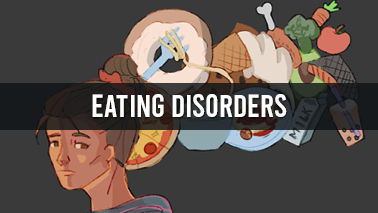
The term "eating disorders" refers to a group of complex mental health conditions that can have serious consequences for one's health and social functioning.
Eating disorders can cause emotional distress as well as serious medical complications. In addition, they have the highest mortality rate of any mental disorder.
Most eating disorders involve obsessing over your weight, body shape, and food, which leads to dangerous eating habits. These behaviours can significantly impact your body's ability to obtain adequate nutrition. Eating disorders can harm the heart, digestive system, bones, teeth, and mouth, as well as lead to other diseases.
In regards to feeding and eating disorders, there are several types:
• Binge Eating Disorder (BED)
• Bulimia Nervosa (BN)
• Anorexia Nervosa (AN)
• Other Specified Feeding and Eating Disorder (OSFED)
• Avoidant/Restrictive Food Intake Disorder (ARFID)
• Orthorexia Nervosa
• Night eating syndrome
• Pica
• Purging disorder
• Rumination disorder
Symptoms of Eating Disorders:
• Reduced food intake
• Significant weight changes or being severely underweight
• Inability to resist food binge
• Excessive amount of exercise
• Presence of laxatives, diuretics, or purging use
• Constant and inappropriate thoughts about food, body image, and weight
Eating disorders commonly occur together with other mental illnesses, mainly anxiety disorders, which include:
• Body dysmorphic disorder (BDD)
• Generalized anxiety disorder (GAD)
• Obsessive-compulsive disorder (OCD)
• Social anxiety disorder (GAD)
Eating disorders can affect every part of the body, causing problems such as;
• Brain mass loss
• Cardiovascular problems
• Disrupted sleep patterns
• Gastrointestinal Disorders
• Dental problems
• Fainting spells
• Hair loss
• Loss of menstrual period post-puberty
• Musculoskeletal damages and pain
• Weakened bones
Medical doctors and mental health specialists, such as psychiatrists and psychologists, can diagnose eating disorders. Often, a pediatrician or primary care doctor will diagnose an eating disorder after noticing symptoms during a regular check-up.
Although there is no specific laboratory test to identify eating disorders, your doctor can diagnose you using a combination of physical and psychological examinations as well as lab testing, such as:
• A physical exam, during which your height, weight, and vital signs will be noted.
• Psychological evaluation, which includes personal questions about your eating behaviors, binging, purging, exercise habits, and body image
• A complete blood count, liver, kidney, and thyroid function tests, urinalysis, X-ray, and an electrocardiogram are among the lab procedures that may be performed.
Tags
Mental Health Association Conferences
Pharmacotheraphy Conferences
Psychiatry Conferences 2022 USA
Psycho Education Conferences
Mental Illness Conferences
Addiction Conferences
Geriatric Psychiatric Conferences
Psychology Conferences
Bipolar Disorder Conferences
Pharmacology Conferences
Neurology Conferences
Psychosis Conferences
Child Psychology Conferences
Counselling Psychology Conferences
Stress Conferences
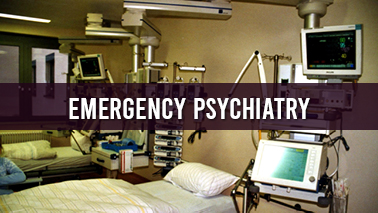
The clinical application of psychiatry in emergency settings is known as emergency psychiatry. Suicidal attempts, substance abuse, depression, psychosis, violence, or other rapid changes in behaviour may all necessitate psychiatric intervention. Professionals in medicine, nursing, psychology, and social work provide psychiatric emergency services.
Any change in a person's thinking, behaviour, mood, and/or sensory experiences associated with a disturbance of the person's personal, social, and/or occupational functioning, resulting in an inability to carry out their day-to-day roles and responsibilities, are signs that they may be suffering from a Mental Illness.
A psychiatric emergency can involve, but is not limited to, the following:
• Persons who express suicidal thoughts or who have recently attempted suicide
• Individuals who have expressed thoughts of harming others or who have recently harmed others in the presence of other signs of Mental Illness
• Persistent and severe Aggression or agitation due to mental illness
• Neglect of self-care as a result of mental illness
Treatments in psychiatric emergency rooms are often transient in nature, with the goal of providing dispositional remedies and/or stabilising life-threatening situations. Patients with chronic conditions may be transferred to a facility that can provide long-term psychiatric rehabilitation once they have been stabilised. Treatments prescribed in an emergency room vary depending on the patient's condition. In an emergency, various types of psychiatric medication, psychotherapy, or electroconvulsive therapy may be used.
Tags
Behavioral Health Conferences
Psychiatry Conferences 2022 Middle East
Positive Psychology Conferences
Pharmacotheraphy Conferences
Human Resilience Conferences
Psycho Education Conferences
Psychology Conferences 2022 Asia
Mental Health Conferences 2022 Middle East
Psychology Conferences 2022 Middle East
Depression Conferences
Psychiatry Association Conferences
Mental Health Conferences 2022 Europe
Mental Health Association Conferences
Mental Health Conferences 2022 USA
Women Psychology Conferences
Social psychiatry is a subspecialty of psychiatry that examines the interpersonal and cultural contexts of mental illness and well-being. Social psychiatry blends medical expertise and perspective with social anthropology, social psychology, cultural psychiatry, sociology, and other sciences concerned with mental suffering and illness. Social psychiatry has been linked to the creation of therapeutic communities as well as the recognition of the impact of socioeconomic variables on mental disease. Biopsychiatry is a branch of social psychiatry that focuses on genetics, brain neurochemistry, and medicine. For much of the twentieth century, social psychiatry was the dominant kind of psychiatry, although it is now less visible than biopsychiatry.
Individuals, families, and society can benefit most from social psychiatry when it comes to developing mental health promotion and preventing specific mental diseases.
The concept of big "life events" as precipitants of mental ill health, such as bereavement, promotion, relocation, or having a child, was developed in part by social psychiatry.
Many therapeutic communities that were once inpatient facilities are now day centres, with an emphasis on borderline personality disorder and operated by psychotherapists or art therapists rather than psychiatrists.
Social psychiatrists assist in the cross-cultural application of psychiatric diagnoses and judgments of need or disadvantage, demonstrating specific linkages between mental illness and unemployment, overcrowding, and single-parent homes.
Self-esteem and self-efficacy are also linked to mental health, and thus to socioeconomic variables, by social psychiatrists.
Rather than "therapy," social psychiatrists frequently focus on rehabilitation in a social environment.
The goal of modern social psychiatry is to make it easier for people with mental illnesses to integrate into society.
Psychiatric epidemiology is a branch of epidemiology that looks into the causes of mental problems in society, as well as the conceptualization and prevalence of mental illness.
Tags
Addiction Conferences
Psychiatry Conferences 2022 Middle East
Neurology Conferences
Psychology Conferences 2022 Asia
Mental Health Association Conferences
Psycho Education Conferences
Psychiatry Conferences 2022 USA
Adolescent Medicine Conferences
Counselling Psychology Conferences
Psychotherapy Conferences
Stress Conferences
Positive Psychology Conferences
Pharmacotheraphy Conferences
Mental Health Conferences 2022 Asia
Mental Illness Conferences
A mental health policy is a document issued by the government or the Ministry of Health that outlines the country's goals for improving mental health, the priorities among those goals, and the key paths to achieving those goals. It could consist of the following elements: Advocacy for mental health goals, such as mental well-being, prevention of mental disorders, treatment of mental disorders, and rehabilitation, in order to enable mentally ill people attain optimal social and psychological functioning.
Only 62.1% of countries have a mental health policy, accounting for 68.3 % of the global population. Approximately half of the African countries do not have a mental health policy in place. In low-income, lower-middle-income, upper-middle-income, and high-income countries, mental health policies are prevalent in 51%, 70%, 68%, and 70%, respectively. Most countries' mental health policies include the majority of broad topics, including treatment (98.1%), prevention (95.3%), rehabilitation (93.4%), promotion (91.4%), and advocacy (91.4%). (80.4%). Other aspects of intersectoral collaboration, social assistance, human resource development, and improving facilities for the disadvantaged were also addressed in several countries' policies (e.g., Maoris in New Zealand).
Many industrialised countries, including the Scandinavian countries, the United Kingdom, Australia, and New Zealand, have national mental health policies that are comprehensive. Some countries without a national mental health policy may still have good mental health services; for example, some European countries lack a stated policy but have well-developed action plans, while others, such as the United States, have a state or provincial-level policy rather than a national-level policy. On the other side, it's possible that a country that has a mental health policy hasn't fully executed it.
Mental health promotion must be integrated into government and business policies in areas such as education, labour, justice, transportation, the environment, housing, and welfare, as well as the health sector.
• Intersectorial methods have a big role in mental health promotion.
• Early childhood treatments are one method to boost mental health.
• Assistance to children through skill-building initiatives
• Women's socioeconomic empowerment
• Social assistance for the elderly
• Programs for minorities, indigenous peoples, migrants, and people affected by conflicts and disasters
• School-based efforts to promote mental health
• Workplace mental health initiatives
• Policies on housing
• Programs to prevent violence
• Community-building initiatives
Tags
Neurology Conferences
Sleep Disorder Conferences
Pharmacology Conferences
Geriatric Psychiatric Conferences
Behavioral Health Conferences
Psychology Association Conferences
Psycho Education Conferences
Adolescent Medicine Conferences
Psychology Conferences 2022 Middle East
Psychotherapy Conferences
Psychiatry Conferences 2022 Middle East
Counselling Psychology Conferences
Psychology Conferences
Addiction Conferences
Psychology Conferences 2022 Asia
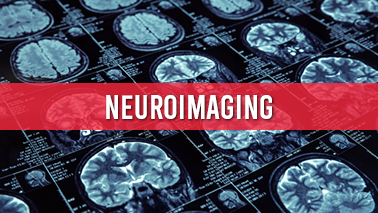
Neuroimaging, is defined as using various techniques to image the structure, function, or pharmacology of the nervous system. It is a relatively new field of study within medicine, neuroscience, and psychology. Neuroradiologists are physicians who specialise in the performance and interpretation of neuroimaging in the clinical setting. Neuroimaging is classified into two broad categories:
• Structural imaging is concerned with the structure of the nervous system as well as the diagnosis
• Functional imaging is used to diagnose metabolic diseases and lesions on a finer scale (for example, Alzheimer's disease), as well as for neurological and cognitive psychology research and the development of brain-computer interfaces.
Neuroimaging is performed after a neurological examination in which a physician has discovered a reason to further investigate a patient who has or may have a neurological disorder.
Neuroimaging techniques, which includes:
• Computed axial tomography
• Diffuse optical imaging
• Event-related optical signal
• Magnetic resonance imaging
• Functional magnetic resonance imaging
• Magnetoencephalography
• Positron emission tomography
• Single-photon emission computed tomography
• Cranial ultrasound
• Functional ultrasound imaging
Functional Magnetic Resonance Imaging (fMRI):
fMRI is non-invasive compared to other imaging methods, fMRI is commonly classified as having a low-to-moderate risk. fMRI produces its imaging by using blood oxygenation level dependent (BOLD)-contrast. Because BOLD-contrast is a naturally occurring process in the body, fMRI is frequently preferred over imaging methods that use radioactive markers to produce comparable imaging results.
Computed Tomography (CT) Scan:
A CT scan can be performed in less than a second and provide clinicians with immediate results.
CT scans can expose patients to radiation levels that are 100-500 times higher than traditional x-rays, with higher radiation doses resulting in higher resolution imaging.
Magnetoencephalography (MEG) and Electroencephalography (EEG):
MEG and EEG have high temporal resolution, allowing them to measure brain activity down to the millisecond. MEG and EEG do not require the patient to be exposed to radiation. To measure brain activity, EEG electrodes detect electrical signals produced by neurons, whereas MEG measures activity by measuring oscillations in the magnetic field produced by these electrical currents.
Tags
Psychology Association Conferences
Mental Health Conferences 2022 USA
Psychology Conferences
Geriatric Psychiatric Conferences
Neurology Conferences
Psychology Conferences 2022 Asia
Psychiatry Conferences 2022 Middle East
Adolescent Medicine Conferences
Psychology Conferences 2022 USA
Pharmacology Conferences
Child Psychology Conferences
Women Psychology Conferences
Psychosis Conferences
Addiction Conferences
Positive Psychology Conferences
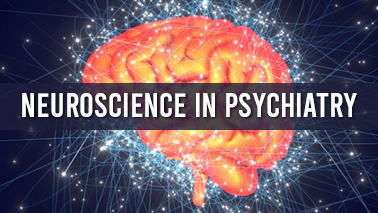
Psychiatry is concerned with the diagnosis, treatment, and prevention of complex brain disorders such as depression, bipolar disorder, anxiety disorders, schizophrenia, developmental disorders, and neurodegenerative disorders. Its primary mission is to prevent and relieve the distress and impairment caused by these disorders, which account for a significant portion of the global burden of illness-related disability. Clinical neuroscience underpins psychiatry. Its core mission is best served in this context, now and in the future, because advances in the assessment, treatment, and prevention of brain disorders are likely to stem from aetiology and pathophysiology studies based in clinical and translational neuroscience. To maintain its broad public health relevance in the future, psychiatry must also bridge science and service, ensuring that those who benefit from its science are also beneficiaries. To do so effectively, psychiatry as a clinical neuroscience discipline must strengthen its collaborations with public health, community and behavioural health science, and health economics.
These strategies include new approaches to strengthening the relationship between psychiatry and neurology, funding psychiatry's mission, emphasising early and sustained multidisciplinary training (research and clinical), strengthening academic infrastructure, and reorganising and refining mental health services for both preventive intervention and cost-effective chronic disease management.
Tags
Psychiatry Conferences 2022 USA
Psychiatry Conferences 2022 Middle East
Psychosis Conferences
Alzheimer's disease Conferences
Psychology Conferences 2022 Middle East
Mental Health Rehabilitation Conferences
Pharmacotheraphy Conferences
Pharmacology Conferences
Mental Health Conferences 2022 USA
Psychiatry Association Conferences
Psychology Conferences 2022 Asia
Child Psychology Conferences
Depression Conferences
Mental Health Conferences
Psychiatry Conferences 2022 Asia

Pain management is a discipline of medicine that employs an interdisciplinary approach to lighten chronic pain and improve quality of life for those who suffer from it. Medical practitioners, pharmacists, clinical psychologists, physiotherapists, occupational therapists, physician assistants, nurses, and dentists are all part of a typical pain management team. Other mental health specialists and massage therapists may be part of the team. Pain can go away rapidly once the underlying trauma or pathology has healed, and it can be treated with analgesics and (rarely) anxiolytics by a single practitioner.
Medicine aids and speeds healing by treating injuries and diseases. It alleviates suffering during treatment, recovery, and death by treating uncomfortable symptoms like pain.
Pharmacological measures, such as analgesics, antidepressants, and anticonvulsants; interventional procedures, such as physical therapy, physical exercise, and the application of ice or heat; and psychological measures, such as biofeedback and cognitive behavioural therapy, are all used to treat chronic pain.
Examples of nonprescription pain medications include:
Acetaminophen (Tylenol), Aspirin, Ibuprofen, and Naproxen (Aleve)
Examples of prescription medications include the following:
Nonsteroidal anti-inflammatory drugs (NSAIDs):
Diclofenac (Voltaren), Diflunisal (Dolobid), Etodolac (Lodine), Fenoprofen (Nalfon), Flurbiprofen (Ansaid), Ibuprofen (Motrin), Indomethacin (Indocin, Indo-Lemmon), Ketorolac (Toradol), Mefenamic acid (Ponstel), Meloxicam (Mobic), Nabumetone (Relafen), Naproxen (Naprosyn, Anaprox), Oxaprozin (Daypro), Piroxicam (Feldene), Sulindac (Clinoril), and Tolmetin (Tolectin).
COX-2 inhibitor:
Celecoxib (Celebrex)
Opioid analgesics:
Acetaminophen with codeine, Buprenorphine (Butrans), Fentanyl transdermal patches (Duragesic), Hydrocodone with acetaminophen, Hydrocodone with ibuprofen (Vicoprofen),Hydrocodone (Zohydro), Hydromorphone (Exalgo), Meperidine (Demerol, Merpergan), Methadone (Dolophine), Morphine and morphine sustained release (MS-Contin, Avinza, Kadian), Oxycodone sustained release (OxyContin), Oxycodone with acetaminophen (Percocet), Oxycodone with aspirin (Percodan), Oxycodone with ibuprofen (Combunox), Oxymorphone (Opana, Opana ER), Pentazocine (Talwin,), Propoxyphene with aspirin, propoxyphene with acetaminophen, Tapentadol (Nucynta, Nucynta ER), and Tramadol.
Mixed opioid agonist/antagonists:
Pentazocine/naloxone (Talwin NX), Butorphanol and Nalbuphine (Nubain)
Antidepressants:
Amitriptyline (Elavil), Bupropion (Wellbutrin), Desipramine (Norpramin), Duloxetine (Cymbalta), Imipramine (Tofranil), and Venlafaxine (Effexor)
Anticonvulsants:
Carbamazepine (Tegretol), Clonazepam (Klonopin), Gabapentin (Neurontin), Lamotrigine (Lamictal), Pregabalin (Lyrica), Tiagabine (Gabitril), Topiramate and (Topamax)
Fibromyalgia medication:
Milnacipran (Savella)
Anxiolytics:
Alprazolam (Xanax), Diazepam (Valium), Lorazepam (Ativan) and Triazolam (Halcion)
Muscle relaxants:
Baclofen (Lioresal), Carisoprodol (Soma), Chlorzoxazone (Parafon Forte, DSC), Cyclobenzaprine (Flexeril), Dantrolene (Dantrium), Metaxalone (Skelaxin), Methocarbamol (Robaxin), Orphenadrine (Norflex), Tizanidine (Zanaflex)
Corticosteroids:
Cortisone, Prednisone, Prednisolone, Dexamethasone, Methylprednisolone and Triamcinolone
Tags
Positive Psychology Conferences
Adolescent Medicine Conferences
Psychosis Conferences
Counselling Psychology Conferences
Depression Conferences
Addiction Conferences
Psychology Conferences 2022 Asia
Pharmacotheraphy Conferences
Mental Health Conferences 2022 Europe
Psychiatry Conferences 2022 USA
Psycho Education Conferences
Psychology Conferences
Geriatric Psychiatric Conferences
Bipolar Disorder Conferences
Pharmacology Conferences
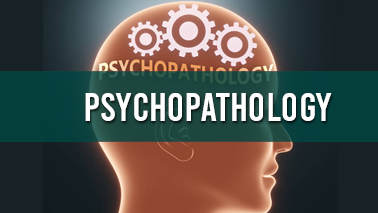
Psychopathology is the study of mental illness, which can include a wide range of elements such as symptoms, behaviours, causes (genetics, biology, social, and psychological), course, development, categorization, treatments, and strategies.
Some of the signs that a person may be suffering from psychopathology are as follows:
• Changes in eating habits
• Mood swings
• Excessive worry, anxiety, or fear
• Distressed feelings
• Inability to concentrate
• Anger or irritability
• Tiredness or a lack of energy
• Disruptions to sleep
• Suicidal or self-harming thoughts
• Having difficulty coping with daily life
• Withdrawal from activities and relationships
Some examples of psychopathology include, but are not limited to:
• Trauma
• Substance-related disorders
• Somatic symptom disorders
• Depressive disorders
• Bipolar disorders
• Anxiety disorders
• Sleep disorders
• Schizophrenia
• Personality disorders
• Obsessive-compulsive disorders
• Neurodevelopmental disorders
• Neurocognitive disorders
• Eating disorders
• Dissociative disorders
• Disruptive, impulse-control, and conduct disorders
At the clinical level, many different types of professionals are attempting to use the diagnostic systems that are in place to provide effective treatments to people suffering from psychopathology. These can include:
• Clinical psychologists
• Psychiatrists
• Counselors
• Criminologists
• Family and marriage therapists
• Nurse practitioners
• Psychiatry Nurse
• Sociologists
Deviance, distress, malfunction, and risk are all conditions that might be classified as psychiatric diseases.
According to the Centers for Disease Control and Prevention (CDC), 50% of people will be diagnosed with a mental disease at some point in their lives.
The following are the most generally used methods in the United States for classifying mental illness.
1. Diagnostic and Statistical Manual of Mental Disorders (DSM)
2. International Classification of Diseases (ICD)
3. Research Domain Criteria (RDoC)
Tags
Behavioral Health Conferences
Psychology Conferences 2022 Middle East
Pharmacotheraphy Conferences
Mental Health Conferences 2022 Middle East
Psychotherapy Conferences
Psychiatry Conferences 2022 Middle East
Mental Health Conferences 2022 Europe
Mental Illness Conferences
Psychiatry Conferences 2022 USA
Depression Conferences
Sleep Disorder Conferences
Stress Conferences
Mental Health Conferences
Geriatric Psychiatric Conferences
Women Psychology Conferences
COVID-19 is a dangerous virus that has killed millions of people around the world and left others with long-term health problems.
The coronavirus is contagious and can be passed from person to person.
A laboratory test is used to diagnose it.
Physical separation, mask use, hand hygiene, and staying away from people if unwell are all methods of prevention.
Symptoms appear two to fourteen days after a person has been exposed to the virus. A person infected with the coronavirus can be communicable to others for up to two days before symptoms develop, and for 10 to 20 days after symptoms appear, depending on their immune system and the severity of their sickness.
What are symptoms of coronavirus?
COVID-19 symptoms include:
• Cough
• Fever or chills
• Shortness of breath or difficulty breathing
• Muscle or body aches
• Sore throat
• New loss of taste or smell
• Diarrhea
• Headache
• New fatigue
• Nausea or vomiting
• Congestion or runny nose
Some persons who are infected with the coronavirus develop minor COVID-19 symptoms, while others show no symptoms at all. COVID-19, on the other hand, can cause respiratory failure, long-term lung and heart muscle damage, nervous system difficulties, kidney failure, and death in certain people.
The following complications have been observed in persons who have developed COVID-19:
• Acute respiratory distress syndrome
• Rrregular heart rate (arrhythmia)
• Heart attack
• Renal failure or kidney injury
• Fatigued muscles with extreme pain
• Pediatric multisystem inflammatory syndrome (MIS-C)
Coronavirus Treatment:
There is no specific treatment for COVID-19. Mild cases necessitate treatment to relieve symptoms, such as rest, water, and fever control. Take over-the-counter medication if you have a sore throat, body aches, or a fever.
Patients with severe symptoms should be hospitalised. Remdesivir (Veklury), an antiviral medication, was the first to be approved by the FDA for the treatment of COVID-19 hospitalised patients. Evidence suggests that those given remdesivir recovered in about 11 days, compared to 15 days for those given a placebo.
Many clinical trials are currently being conducted to investigate and develop new COVID-19 therapies that have previously been used to treat other diseases.
Tocilizumab, a drug used to treat autoimmune diseases, is currently being tested in clinical trials. The FDA is also allowing clinical research and hospital use of blood plasma from COVID-19 survivors to aid in the development of immunity in others. This is known as convalescent plasma. There is currently insufficient evidence to support its efficacy.
Early in the pandemic, the anti-malarial medications hydroxychloroquine and chloroquine were considered as potential treatments. The FDA revoked the emergency use order after tests revealed that the medications were ineffective and that the risks outweighed the benefits.
One of the steroid treatments used is dexamethasone, a steroid medicine used to treat arthritis, blood/hormone/immune system abnormalities, and allergic responses. More efficacy research is being conducted.
What is the recovery rate of coronavirus?
Scientists and researchers are closely monitoring COVID-19 infections and recoveries. They do not, however, have data on the outcome of every infection. The overall COVID-19 recovery rate, according to preliminary projections, will be between 97 and 99.75 percent.
Following vaccines are currently available for prevention of coronavirus.
• Pfizer-BioNTech
• Moderna
• Johnson & Johnson’s Janssen
• COVAXIN and COVISHIELD
• Sputhnik V
Tags
Psychotherapy Conferences
Women Psychology Conferences
Psychiatry Conferences 2022 USA
Mental Illness Conferences
Mental Health Rehabilitation Conferences
Adolescent Medicine Conferences
Bipolar Disorder Conferences
Psychiatry Conferences 2022 Asia
Sleep Disorder Conferences
Addiction Conferences
Mental Health Conferences 2022 Europe
Human Resilience Conferences
Depression Conferences
Psychology Association Conferences
Psycho Education Conferences
The COVID-19 pandemic, as well as the ensuing economic downturn, have had a negative impact on many people's mental health and created new barriers for those who already suffer from mental illness and substance use disorders. Throughout the pandemic, approximately 4 in 10 adults have reported symptoms of anxiety or depressive disorder, a share that has remained relatively consistent. According to a July 2020 KFF Health Tracking Poll, many adults are reporting specific negative effects on their mental health and well-being, such as difficulty sleeping (36%) or eating (32%), increases in alcohol consumption or substance use (12%), and worsening chronic conditions (12%), as a result of concern and stress about the coronavirus. As the pandemic progresses, ongoing and necessary public health measures expose a growing number of people to situations associated with poor mental health outcomes, such as isolation and job loss.
A recent study also discovered that 18% of people (both with and without a prior psychiatric diagnosis) who received a COVID-19 diagnosis were later diagnosed with a mental health disorder, such as anxiety or mood disorders. Older adults are also more vulnerable to severe coronavirus illness and have reported higher levels of anxiety and depression during the pandemic.
Tags
Mental Health Conferences 2022 Asia
Psychology Conferences
Psychology Conferences 2022 Asia
Psychology Conferences 2022 Middle East
Pharmacotheraphy Conferences
Pharmacology Conferences
Psychology Association Conferences
Psychiatry Association Conferences
Addiction Conferences
Behavioral Health Conferences
Women Psychology Conferences
Adolescent Medicine Conferences
Psychiatry Conferences 2022 Middle East
Mental Health Conferences 2022 Europe
Mental Health Association Conferences
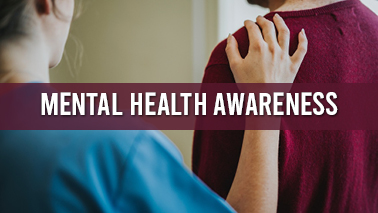
Mental illness awareness means acceptance and love rather than judgment and shame; it means an end to the stigma and the beginning of hope. Awareness basically starts in educating people to reduce stigma and improve quality of life for those with mental illness. Mental illness awareness is being comfortable talking about mental health without the fear of being judged for it. It's less stigma and less hatred towards those with mental illness. It means recognizing that mental illness is as real as any physical illness.
Tags
Behavioral Health Conferences
Mental Health Association Conferences
Mental Health Conferences 2022 Middle East
Psychiatry Conferences 2022 USA
Mental Health Conferences 2022 Asia
Psycho Education Conferences
Psychotherapy Conferences
Mental Health Conferences
Psychology Association Conferences
Psychology Conferences 2022 Middle East
Mental Illness Conferences
Pharmacology Conferences
Psychology Conferences
Human Resilience Conferences
Schizophrenia Conferences

Though practicing yoga increases strength and flexibility, yoga and mental health have an admirable link with our mental health. Practitioners of yoga may acquire psychiatric benefits including an improved mood and reduced stress and anxiety.
Tags
Mental Health Conferences 2022 Asia
Human Resilience Conferences
Mental Illness Conferences
Psychosis Conferences
Psychiatry Association Conferences
Addiction Conferences
Psychology Association Conferences
Pharmacology Conferences
Psychology Conferences 2022 Asia
Women Psychology Conferences
Psychiatry Conferences 2022 Asia
Psychotherapy Conferences
Psychology Conferences 2022 Middle East
Mental Health Conferences
Mental Health Conferences 2022 Europe
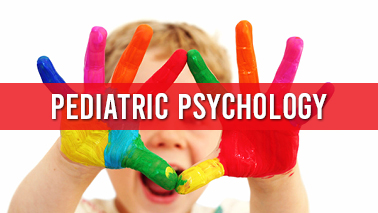
Pediatric psychiatry is a specialty within psychiatry working with children and young people up to the age of 18, and their families. Working as a pediatric psychiatrist provides an opportunity to make a significant difference to the lives of the next generation. It is an interesting fact which has seen tremendous developments over the last two decades. Child psychiatry combines the rigors and science of medicine, with the art and creativity of therapy. The ability to analyzing for young people and improve public mental health both are adding dimensions to the work that mean the possibilities are fruitful.
Tags
Bipolar Disorder Conferences
Psychiatry Association Conferences
Geriatric Psychiatric Conferences
Mental Health Conferences
Psychotherapy Conferences
Mental Health Conferences 2022 USA
Schizophrenia Conferences
Pharmacotheraphy Conferences
Mental Health Rehabilitation Conferences
Psychology Conferences
Child Psychology Conferences
Psychosis Conferences
Women Psychology Conferences
Psychology Conferences 2022 USA
Mental Health Association Conferences
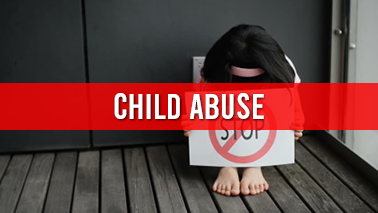
A complex set of behaviors that include child neglect and the physical, emotional and sexual abuse of children. Child abuse includes punching, beating, kicking, biting, burning, shaking, or otherwise physically harming a child. Injuries that can be fatal include severe head trauma, scalding, burns, drowning, suffocation, trauma to the abdomen and poisoning.
Tags
Mental Health Conferences
Psychology Association Conferences
Psychiatry Conferences 2022 Asia
Bipolar Disorder Conferences
Psychiatry Association Conferences
Sleep Disorder Conferences
Mental Health Conferences 2022 Middle East
Women Psychology Conferences
Psychiatry Conferences 2022 Middle East
Counselling Psychology Conferences
Psychology Conferences
Psychology Conferences 2022 USA
Psychology Conferences 2022 Asia
Pharmacology Conferences
Mental Illness Conferences
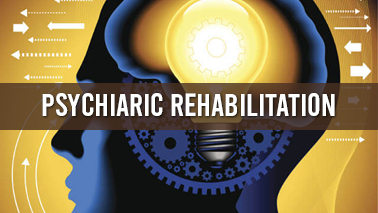
Individuals suffering from severe mental dysfunction require rehabilitation. The goal of psychiatric rehabilitation is to help disabled individuals to develop the emotional, social, physical and intellectual skills which are important to live, learn and work in the community with the least amount of professional support.
Tags
Child Psychology Conferences
Pharmacotheraphy Conferences
Psycho Education Conferences
Depression Conferences
Schizophrenia Conferences
Psychiatry Conferences 2022 USA
Addiction Conferences
Mental Health Conferences 2022 USA
Psychology Association Conferences
Pharmacology Conferences
Mental Illness Conferences
Psychology Conferences 2022 Asia
Counselling Psychology Conferences
Neurology Conferences
Psychiatry Conferences 2022 Middle East
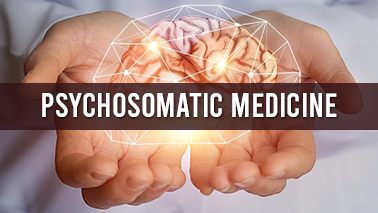
Psychosomatic medicine is a newly licensed sub specialty in the field of psychiatry. It is also known as consultation-liaison psychiatry. It provides knowledge, practice and instruction in the relation between mental and physical illness. This field is connected with services like diagnosis, therapeutics and research of disorders in this particular area. Hence it connects psychiatry and other medical specialties, so that psychiatrists can discuss how to manage patients with psychosomatic dysfunction.
Tags
Bipolar Disorder Conferences
Geriatric Psychiatric Conferences
Mental Health Rehabilitation Conferences
Schizophrenia Conferences
Mental Health Conferences 2022 USA
Psychiatry Association Conferences
Child Psychology Conferences
Depression Conferences
Alzheimer's disease Conferences
Mental Health Conferences 2022 Europe
Sleep Disorder Conferences
Mental Health Conferences 2022 Asia
Psychology Conferences 2022 USA
Mental Health Association Conferences
Mental Health Conferences
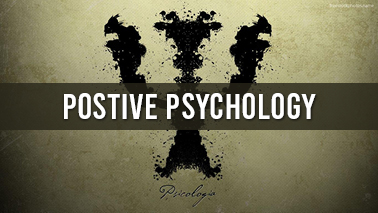
Positive brain investigation is a moderately latest field of brain science which spotlights on the most proficient method to enable people to flourish and lead solid and upbeat lives. While different parts of brain will in general spotlight on brokenness and anomalous conduct yet constructive brain research is fixated on helping individuals become more joyful. In this specific session we will cover all the real subjects of positive brain research including Positive Psychology practice, Optimism and vulnerability, Mindfulness, Positive reasoning, Mental Resilience and utilization of positive brain science.
Tags
Psychology Conferences
Adolescent Medicine Conferences
Psychotherapy Conferences
Psychiatry Conferences 2022 Middle East
Mental Health Conferences 2022 Asia
Stress Conferences
Alzheimer's disease Conferences
Women Psychology Conferences
Human Resilience Conferences
Geriatric Psychiatric Conferences
Positive Psychology Conferences
Mental Health Conferences
Psychology Conferences 2022 USA
Psychiatry Conferences 2022 Asia
Mental Health Conferences 2022 Europe
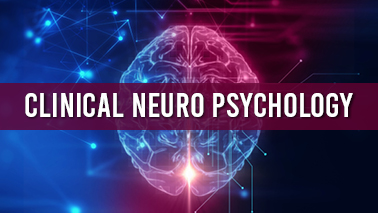
It is a strong point in professional clinical psychology involves in applying the principles, assessment and interventions based on scientific study of human behaviour and its normal or abnormal functioning of the central nervous system. Clinical neuropsychologists address developmental disorders of the nervous system and apply their specialized knowledge in the assessment, diagnosis and treatment of the individual with this kind of neurodevlopmental disorders. Pediatric neuropsychologists provide specialized clinical services to children and youngsters.
Tags
Mental Illness Conferences
Mental Health Conferences 2022 Middle East
Adolescent Medicine Conferences
Mental Health Conferences 2022 Europe
Mental Health Rehabilitation Conferences
Bipolar Disorder Conferences
Mental Health Association Conferences
Child Psychology Conferences
Psychosis Conferences
Psychiatry Conferences 2022 USA
Psychology Conferences 2022 Asia
Psychology Conferences 2022 Middle East
Psychology Conferences
Alzheimer's disease Conferences
Human Resilience Conferences
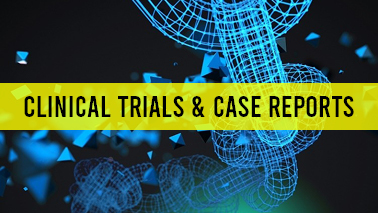
Mental Health case reports include the various studies carried out by observing & considering the causes of mental illness and mental disorders. It includes Interventional studies for mental health, Observational studies for mental health, Cross-sectional studies, Descriptive studies and the Analytical studies. In mental health, case reports may focus on the journey of consumer's or life trajectory, providing the clinician with an opportunity to reflect and strengthen their practice. Sharing case reports, stories of hope, resilience, and struggle can provide a template of recovery that is within reach of all consumers.
Tags
Geriatric Psychiatric Conferences
Mental Health Conferences
Positive Psychology Conferences
Adolescent Medicine Conferences
Women Psychology Conferences
Neurology Conferences
Behavioral Health Conferences
Mental Health Conferences 2022 Asia
Mental Health Conferences 2022 Middle East
Counselling Psychology Conferences
Sleep Disorder Conferences
Pharmacotheraphy Conferences
Psychology Conferences 2022 Middle East
Child Psychology Conferences
Psycho Education Conferences
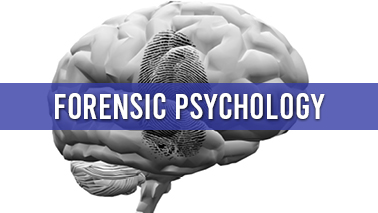
Forensic science is that the application of psychology to the criminal justice system; it deals with the assessment and treatment of mentally disordered offenders and criminals. It’s AN interface between mental state and law. principally individuals get confused between the rhetorical science and rhetorical science .so here we'll discuss on is rhetorical Science and rhetorical science related rhetorical psychologists of times influence legal problems, like public policies, and new laws .This topic has the wide scope which incorporates sociology studies, moral problems, Recent Challenges for science and law, recent development and advancement in rhetorical science, Prediction of violence and risk assessment and Case Studies.
Tags
Bipolar Disorder Conferences
Sleep Disorder Conferences
Psychology Conferences 2022 Middle East
Mental Health Conferences 2022 USA
Counselling Psychology Conferences
Mental Health Rehabilitation Conferences
Depression Conferences
Psychology Association Conferences
Alzheimer's disease Conferences
Schizophrenia Conferences
Psycho Education Conferences
Mental Health Conferences 2022 Middle East
Psychotherapy Conferences
Child Psychology Conferences
Human Resilience Conferences
Mental strength is a person's capacity to adjust to misfortune and stress. Strength is the capacity to skip once more from a negative ordeal. It developed as a noteworthy hypothetical and research point for the examining offspring of schizophrenic moms. Various ways to deal with strength building have been created, assembling consideration for the most part on the hypothesis and routine with regards to subjective conduct treatment and balanced emotive conduct treatment. A developing field in the investigation of flexibility is the neurobiological premise of strength to push. The point of the session is to comprehend about, strength, its natural models and methodologies, capacity and mental versatility.
Tags
Psychology Conferences 2022 Middle East
Mental Health Conferences 2022 Europe
Geriatric Psychiatric Conferences
Psychosis Conferences
Psychology Association Conferences
Psychiatry Conferences 2022 Asia
Women Psychology Conferences
Mental Health Association Conferences
Mental Health Conferences 2022 USA
Mental Illness Conferences
Psychiatry Conferences 2022 Middle East
Psychiatry Association Conferences
Counselling Psychology Conferences
Psychology Conferences 2022 Asia
Schizophrenia Conferences
Mental Illnesses are brain-based conditions that affect thinking, emotions, and behaviors. Since we all have brains – having some kind of mental health problem during your life is really common. Mental illness does not discriminate; it can affect anyone regardless of your age, gender, geography, income, social status, race/ethnicity, religion/spirituality, sexual orientation, background or other aspect of cultural identity. While mental illness can occur at any age, three-fourths of all mental illness begins by age 24.
Many people who have a mental illness do not want to talk about it. But mental illness is nothing to be ashamed of! It is a medical condition, just like heart disease or diabetes. And mental health conditions are treatable. We are continually expanding our understanding of how the human brain works, and treatments are available to help people successfully manage mental health conditions.
Tags
Psychiatry Conferences 2022 USA
Stress Conferences
Mental Health Association Conferences
Psychology Conferences 2022 USA
Mental Health Conferences 2022 USA
Mental Health Conferences
Addiction Conferences
Child Psychology Conferences
Positive Psychology Conferences
Mental Health Conferences 2022 Asia
Psychiatry Conferences 2022 Middle East
Psychology Association Conferences
Pharmacology Conferences
Geriatric Psychiatric Conferences
Adolescent Medicine Conferences
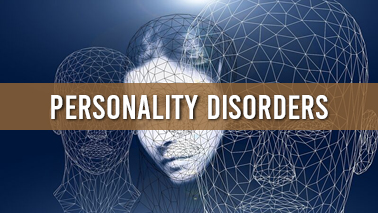
Personality disorders are a group of mental health disorders defined by inflexible and harmful thinking, emotion, and acting habits. The expectations of the culture in which someone lives are frequently at odds with these inner sensations and behaviours.
Personality disorders have no recognised cause. They are thought to be triggered by genetic and environmental factors, the most notable of which is childhood trauma.
Personality problems usually appear in adolescence or early adulthood. The symptoms of personality disorders differ based on the type. Talk therapy and medication are commonly used in treatment.
Personality disorders various in type. They've been divided into three groups based on similar traits and symptoms. Multiple personality disorders might show up in the form of signs and symptoms in certain people.
Cluster A: Suspicious
• Paranoid personality disorder
• Schizoid personality disorder
• Schizotypal personality disorder
Cluster B: Emotional and Impulsive
• Antisocial personality disorder
• Borderline personality disorder
• Histrionic personality disorder
• Narcissistic personality disorder
Cluster C: Anxious
• Avoidant personality disorder
• Dependent personality disorder
• Obsessive-compulsive personality disorder
For a diagnosis of a personality disorder, certain criteria must be met.
To determine the type of personality problem, a primary care or mental health professional will ask you questions based on these criteria.
Treatment for personality disorders varies based on the nature and intensity of the disorder. Psychotherapy and drugs may be used.
Psychotherapy, often known as talk therapy, can aid in the treatment of personality problems. You and your therapist can talk about your condition, as well as your feelings and thoughts, during psychotherapy. This might help you understand how to deal with symptoms and habits that are interfering with your daily life.
Cognitive behavioural therapy teaches people how to overcome negative thought habits so they can cope better with daily obstacles.
Personality disorders are treated with certain prescription drugs that may be useful in lowering the symptoms of personality disorders:
• Mood stabilisers, which prevent mood swings and reduce irritability and aggression.
• Antidepressants, which can help improve a depressed mood, anger, or impulsivity.
• Antipsychotic drugs, also known as neuroleptics, may be helpful for those who regularly lose touch with reality.
• Anti-anxiety medications, which can assist with anxiety, restlessness, and insomnia.
Tags
Psychology Conferences
Schizophrenia Conferences
Stress Conferences
Bipolar Disorder Conferences
Psychology Conferences 2022 Middle East
Pharmacotheraphy Conferences
Psychosis Conferences
Counselling Psychology Conferences
Mental Health Conferences 2022 Middle East
Psychiatry Conferences 2022 Asia
Behavioral Health Conferences
Psychology Conferences 2022 USA
Human Resilience Conferences
Depression Conferences
Adolescent Medicine Conferences
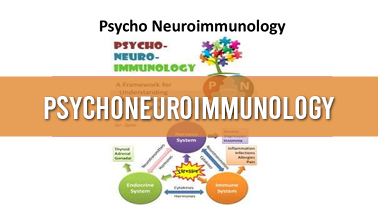
Psychoneuroimmunology (PNI) is relatively a new field of study that looks at how your central nervous system (CNS) interacts with your immune system. Our CNS and immune system can communicate with one another, but researchers have only lately begun to comprehend how this works and what it means for our health.
The effects of stress on the immune system have been studied extensively. The release of cytokines in reaction to physical and psychological stress is the subject of many of these research.
A cytokine is a tiny protein that cells, particularly those in your immune system, release. There are many different types of cytokines, but pro-inflammatory cytokines are those that are generally activated by stress.
In most cases, your body produces pro-inflammatory cytokines in reaction to an infection or damage to aid in the destruction of germs or the repair of tissue. Your body releases several hormones, including epinephrine (adrenaline), when you are physically or emotionally worried. These hormones have the ability to connect to certain receptors that activate the generation of pro-inflammatory cytokines.
PNI in a variety of illnesses:
Psoriasis: Psoriasis is an excellent example of how your immune system, central nervous system, mental health, and stress levels are all linked. It's a long-term condition in which your skin cells grow too quickly. Excess skin cells are normally removed by the body, but if you have psoriasis, these extra cells build up on the surface of your skin. This might cause a lot of itching and pain.
The release of cytokines by your immune system causes the proliferation of skin cells in psoriasis. We know that psychological stress can aggravate or precipitate psoriasis flare-ups. Indeed, persons with psoriasis have higher amounts of cortisol.
Cortisol is produced by your hypothalamus, which is part of your central nervous system. When it detects stressors, it sends a signal to your pituitary gland, which then produces cortisol. This, in turn, can cause your immune system to release pro-inflammatory cytokines. These cytokines then cause a proliferation of skin cells.
Furthermore, psoriasis patients frequently experience psychological issues such as sadness, increased stress, and suicide thoughts. An increase in cytokine levels has been associated to serious depression in previous research.
Cancer: In reaction to stress, women with genetic risk factors for cancer displayed immune system abnormalities.
Immune system abnormalities were seen in people with breast, cervical, or ovarian cancer who reported feeling anxious.
The immune system's and brain's communication may have an impact on cancer-related symptoms like fatigue, sadness, and difficulties sleeping.
Coronary artery disease: Psychological stress increased the production of pro-inflammatory cytokines, which is consistent with prior findings.
Increased levels of pro-inflammatory cytokines are linked to higher heart rates and blood pressure. Furthermore, your immune system's production of cytokines contributes to symptoms of sickness and fatigue. Long-term stress and cytokine production, on the other hand, may play a role in the development of heart illness.
Tags
Psychology Conferences
Mental Health Conferences 2022 Middle East
Women Psychology Conferences
Neurology Conferences
Mental Illness Conferences
Psychology Conferences 2022 Middle East
Sleep Disorder Conferences
Child Psychology Conferences
Psycho Education Conferences
Psychiatry Association Conferences
Stress Conferences
Mental Health Conferences 2022 Europe
Psychosis Conferences
Geriatric Psychiatric Conferences
Behavioral Health Conferences
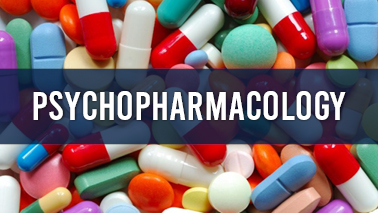
Psychopharmacology is a field, which analyses the impact of different drugs on the mental health of patients. It considers how different compounds alter people’s behavior by changing the way that the person thinks or feels. Some of the conditions that these medicines are used to treat include depression, psychosis and anxiety.
A psychopharmacologist is a specialist who can advise on which drugs will have the best effect on a patient with a specific mental health problem. They have a good understanding of how medicine works and what clinical results to expect.
A psychopharmacologist will need a thorough understanding of the drug's pharmacokinetics and pharmacodynamics (the movement of the drug inside the body).
The neurotransmitters in the brain are affected by the medications used in psychopharmacology.
In psychotropic drugs, the following neurotransmitters are affected:
Acetylcholine, dopamine, endorphins and enkephalins, gaba, glutamate, norepinephrine and serotonin.
Hormones are a mechanism by which medications affect cell communication. The hormones travel far before reaching target cells in the body, whereas neurotransmitters travel a small distance. Because
1) drugs can alter the secretion of many hormones
2) hormones can alter behavioural responses to drugs
3) hormones themselves have psychoactive properties
4) the secretion of some hormones, especially those dependent on the pituitary gland, is controlled by neurotransmitter systems in the brain, the endocrine system is a critical focus of psychopharmacology
Psychopharmacological substances
Alcohol, antidepressants, antipsychotics, benzodiazepines, hallucinogens, hypnotics, cannabis and the cannabinoids, opioids, and stimulants.
Researchers in psychopharmacology are interested in any substance that crosses the blood–brain barrier and affects behaviour, mood, or cognition.
Tags
Stress Conferences
Sleep Disorder Conferences
Mental Health Conferences
Pharmacotheraphy Conferences
Alzheimer's disease Conferences
Psychiatry Conferences 2022 USA
Mental Health Conferences 2022 Europe
Geriatric Psychiatric Conferences
Psycho Education Conferences
Mental Illness Conferences
Human Resilience Conferences
Positive Psychology Conferences
Psychiatry Conferences 2022 Asia
Psychology Conferences 2022 USA
Psychology Conferences 2022 Asia
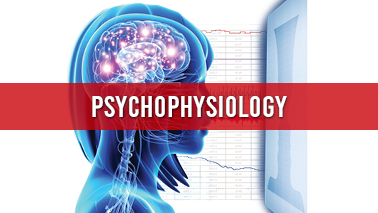
It is the scientific investigation of the interaction between the mind and the body. Psychophysiological disorders can be treated by physicians, psychologists, biochemists, neurologists, engineers, and other scientists.
A psychophysiological disorder is distinguished by physical symptoms that are partly persuaded by emotional factors. Anxiety, stress, and fear are some of the more common emotional states that contribute to the development of illness. Migraine headaches, attention deficit hyperactivity disorder (ADHD), arthritis, ulcerative colitis, and heart disease are examples of common psychosomatic ailments.
By observing and recording data on physiological processes such as sleep rhythms, heart rate, gastrointestinal functioning, immune response, and brain function, applied psychophysiology focuses on the effects of emotional states on the central nervous system.
Electroencephalograms (EEGs), magnetic resonance imaging (MRI), and computerised axial tomography (CAT) scans are all used to measure such factors.
Treatments for psychosomatic illnesses are being developed by combining elements from the allopathic and alternative medical worlds. The methods used range from drug therapy and biofeedback to meditation, yoga, and massage therapy. Therapies that integrate mind/body processes have been shown to help with the healing of a variety of diseases.
A more holistic and preventive approach to healthcare is being sought on medical, social, and environmental levels, one that integrates and balances the mind/body relationship.
Tags
Mental Health Association Conferences
Mental Health Conferences 2022 Europe
Psychotherapy Conferences
Counselling Psychology Conferences
Psychology Conferences 2022 Asia
Mental Health Rehabilitation Conferences
Mental Health Conferences 2022 Asia
Positive Psychology Conferences
Psychiatry Conferences 2022 Middle East
Adolescent Medicine Conferences
Mental Illness Conferences
Mental Health Conferences 2022 USA
Psychiatry Conferences 2022 USA
Mental Health Conferences
Psychology Association Conferences
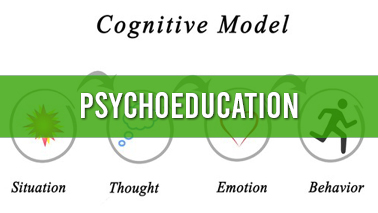
Psychoeducation is an evidence-based therapeutic intervention that provides information and support to patients and their loved ones in order for them to better understand and cope with illness. Although the term "psychoeducation" is most often associated with serious mental illnesses such as dementia, schizophrenia, clinical depression, anxiety disorders, psychotic illnesses, eating disorders, personality disorders, and autism, it has also been used to refer to programmes that address physical illnesses such as cancer.
Psychoeducation, which aims to help people better understand mental health conditions, is observed as an essential component of all therapy programs. It is widely accepted that those with a thorough understanding of the challenges that they are facing, as well as knowledge of personal coping ability, internal and external resources, and their own areas of strength, are often better able to address difficulties, feel more in control of the condition(s), and have a greater internal capacity to work toward mental and emotional well-being.
According to one study, when psychoeducation was given to people with schizophrenia, it helped to reduce rehospitalization rates as well as the number of days a person spent in the hospital. Most trauma therapies include this type of education as well.
Participating in psychoeducation may improve one's quality of life.
Psychoeducation can be general or highly specific, and it can be delivered in a variety of ways, but it is usually guided by four main goals: information transfer, medication and treatment support, self-help and self-care training and support, and the provision of a safe place to vent emotional frustrations.
Psychoeducation, whether delivered in a clinical, school, or hospital setting, or over the phone or the Internet, frequently leads to increased adherence to treatment regimens.
Involvement of family members in psychoeducation can also improve compliance and ensure that a person experiencing mental health issues receives adequate support while receiving treatment.
Organizations such as the National Alliance on Mental Illness (NAMI) have advocated for more psychoeducation for mental health service users and their families.
Tags
Psychiatry Association Conferences
Psychosis Conferences
Depression Conferences
Psychotherapy Conferences
Child Psychology Conferences
Psychiatry Conferences 2022 USA
Schizophrenia Conferences
Bipolar Disorder Conferences
Mental Illness Conferences
Stress Conferences
Psycho Education Conferences
Mental Health Conferences 2022 Middle East
Women Psychology Conferences
Adolescent Medicine Conferences
Psychology Association Conferences
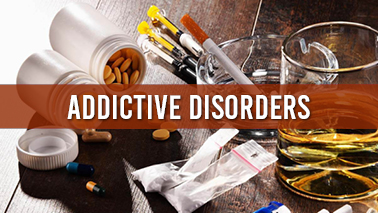
Addictive disorders, such as substance abuse and dependence, are general conditions characterised by excessive consumption of alcohol and/or drugs. Addiction is a chronic and recurring disorder that develops over time.
Substance-related addiction illnesses are referred to by three different types.
Substance abuse:
It is an addictive disorder that describes a pattern of substance (usually drug or alcohol) use that leads to significant problems or distress, such as failure to attend school, substance use in potentially dangerous situations (such as driving a car), substance-related legal issues, or continued substance use that interferes with friendships and/or family relationships. The most frequently harmed legal drug is alcohol.
Substance dependence:
Substance dependency is an addictive condition characterised by the continuous use of drugs or alcohol despite the development of severe issues associated to their usage. Signs include an increased tolerance—that is, the need for more of the substance to achieve the desired effect; withdrawal symptoms with reduced use; unsuccessful attempts to reduce use; increased time spent in activities to obtain the substance; withdrawal from social and recreational activities; and continued use of the substance despite awareness of the physical or psychologic consequences.
Chemical dependence:
Chemical dependence is an addiction disorder that defines a person's inability to stop using chemicals (typically drugs or alcohol) despite the negative consequences of doing so.
The following are some of the chemicals that are commonly abused, particularly among adolescents with addiction disorders:
• Alcohol
• Marijuana
• Hallucinogens
• Cocaine
• Amphetamines
• Opiates
• Steroids anabolic
• Inhalants
• Methamphetamine
• Tobacco
Symptoms:
People suffering from addictive disorders may experience symptoms in a variety of ways. The following are some common signs and symptoms of addiction disorders:
• Regularly getting high on drugs or intoxicated
• Avoiding friends and family members
• Giving up activities they used to enjoy, such as sports or spending time with non-using friends
• Speaking a lot about consuming drugs or alcohol
• Pressuring others getting into legal difficulty
• Taking risks, such as sexual risks or driving while under the influence of a substance
• Being suspended or expelled from school or discharged from a job because of a substance-related incident
• Absent school or work due to substance use
• Feelings of depression, hopelessness, or suicidal ideation
Causes:
Multiple factors contribute to addictive disorders, including genetic vulnerability, environmental stressors, social pressures, individual personality characteristics, and psychiatric problems.
Addiction disorders develop neurologically when a substance alters the way the user's brain perceives pleasure. Addictive substances damage the brain's ability to send and receive chemicals known as neurotransmitters, which are responsible for pleasure. Addictive substances can prevent nerves in the brain from receiving these neurotransmitters, indicating that the drug user relies on the drug for pleasure rather than his or her natural brain chemicals.
Tags
Depression Conferences
Psychosis Conferences
Neurology Conferences
Geriatric Psychiatric Conferences
Psychology Conferences 2022 Middle East
Addiction Conferences
Behavioral Health Conferences
Psychiatry Association Conferences
Bipolar Disorder Conferences
Positive Psychology Conferences
Mental Health Association Conferences
Mental Health Conferences 2022 USA
Psycho Education Conferences
Sleep Disorder Conferences
Women Psychology Conferences
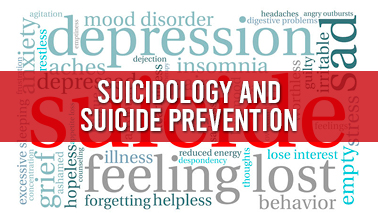
Suicidology is the scientific study of suicidal behaviour, causes, and suicide prevention. Suicidology covers many different fields and disciplines, the two most important of which are psychology and sociology. Every year, approximately one million people commit suicide, resulting in a mortality rate of sixteen per 100,000 people, or one death every forty seconds. Suicide is largely preventable with the right actions, knowledge about suicide, and a shift in society's perception of suicide to make it more acceptable to discuss suicide.
• Suicide is avoidable. Most suicidal people want to live; they just can't see any other way out of their predicament.
• Most suicidal people give clear indications of their suicidal intent, but others are either unaware of the significance of these warnings or are unsure how to respond to them.
• Suicidal thoughts are not triggered by discussing suicide.
• Suicide occurs at all ages, socioeconomic levels, races, and ethnicities.
• Suicidal behaviour is complex and is not a reaction to a single problem that a person is dealing with. Some risk factors differ according to age, gender, or ethnic group, and they may occur in combination or change over time.
• Suicide is the tenth leading cause of death in the United States today. This translates to an annual suicide rate of approximately 14 per 100,000 people.
• Suicide rates decreased from 12.5 to 10.4 per 100,000 people between 1990 and 2000. However, over the last decade, the rate has risen once more. Every day, approximately 121 Americans commit suicide, or one person commits suicide every 12 minutes. (CDC)
• In 2015, there were 1,104,825 suicide attempts in the United States. Every 31 seconds, approximately one person attempts suicide.
• It is estimated that elderly adults have a suicide rate that is nearly 50% higher than the national average (all ages).
• Suicide is now the second leading cause of death for youth (15-24 years old) in the United States.
• 80% of students who commit suicide never seek help from mental health professionals.
• Suicidal thoughts are more common in women than in men.
Suicide prevention refers to all efforts made to reduce the risk of suicide. These efforts can take place on an individual, relationship, community, or societal level. Suicide is frequently avoidable.
Methods other than direct interventions to suicidal attempt may include:
• Treatment of mental illness
• Reducing risk factors for suicide, such as poverty and social vulnerability
• Providing people with hope for a better life after their current problems are resolved;
• Measures in medicine, mental health, and public health are among the general efforts.
Lithium may be useful in reducing the risk of suicide in certain situations. It is particularly effective in lowering the risk of suicide in people suffering from bipolar disorder and major depressive disorder. Certain antidepressant medications have been shown to increase suicidal ideation in some patients under certain conditions.
Tags
Mental Health Association Conferences
Mental Health Conferences 2022 Middle East
Adolescent Medicine Conferences
Stress Conferences
Psychology Conferences
Human Resilience Conferences
Mental Illness Conferences
Psychotherapy Conferences
Bipolar Disorder Conferences
Neurology Conferences
Depression Conferences
Behavioral Health Conferences
Positive Psychology Conferences
Addiction Conferences
Psychiatry Conferences 2022 USA
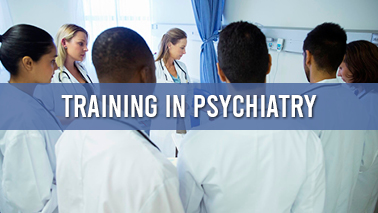
Although you will be training for the duration of your two-year foundation program, you will also be working, which means you will be paid.
You will complete a number of training positions, each of which will last a few months. Throughout the programme, you will gain experience in a variety of medical specialties, such as general practise, psychiatry, and surgery.
During core psychiatry training, you will work and train in a variety of psychiatric sub-specialties. You will gain a broad understanding of the specialty this way.
Core training lasts three years and is denoted by the letters CT1, CT2, and CT3. You must have passed your MRCPsych exam by the end of CT3 in order to apply to the next stage of training.
Higher Psychiatry Training, also known as ST4, ST5, and ST6, typically lasts three years. During those three years, your training will be tailored to your chosen subspecialty. You will receive training in child and adolescent psychiatry, forensic psychiatry, general adult psychiatry, old age psychiatry, psychotherapy, and learning disabilities psychiatry.
There will also be opportunities to work in other sub-specialties such as addictions, eating disorders, neuropsychiatry, perinatal psychiatry, and social and rehabilitation psychiatry. When you complete your training, you will be issued a CCT (Certificate of Completion of Training) and added to the GMC's specialist register. This means you are eligible to apply for consultant positions.
You can work independently as a consultant psychiatrist. You may also be in charge of managing the care of patients with the help of a team of other professionals.
Tags
Pharmacotheraphy Conferences
Human Resilience Conferences
Positive Psychology Conferences
Psychology Conferences 2022 USA
Psychology Conferences 2022 Middle East
Mental Health Association Conferences
Psycho Education Conferences
Psychiatry Conferences 2022 Asia
Mental Health Rehabilitation Conferences
Depression Conferences
Sleep Disorder Conferences
Women Psychology Conferences
Mental Health Conferences 2022 Europe
Alzheimer's disease Conferences
Mental Health Conferences 2022 USA
Women are more likely than men to suffer from poor mental health as a result of social and economic factors.
One in every five women had a mental health problem, compared to one in every eight men.
There has been a steady increase in the number of women experiencing mental health difficulties, with young women being especially vulnerable. One in every five women aged 16 to 25 reported recently self-harming, and suicide rates in women were at their highest in a decade.
A variety of factors influence women's mental health:
• Women are more likely than men to be the primary caregivers for their children, and they may also care for elderly or disabled relatives. Women caregivers are more likely than other women to suffer from anxiety and depression.
• Women are more likely than men to be poor.
• Poverty, working primarily at home, and concerns about personal safety can all contribute to women feeling isolated. Social isolation has been linked to mental health issues.
• Physical and sexual abuse can have a long-term impact on women's mental health, especially if no support is provided. Because women are subjected to more sexual violence than men, they are more likely to suffer from PTSD.
• One in every four women suffers from depression, compared to one in every ten men. It is unclear why this is the case, but factors such as poverty, isolation, and hormonal changes are likely to play a role.
• Women are twice as likely as men to suffer from anxiety disorders. Women account for roughly 60% of those suffering from phobias or obsessive compulsive disorder. Phobias affect approximately 22 out of every 1,000 women in the UK, compared to 13 out of every 1,000 men.
• Women account for two-thirds of dementia patients. The risk of dementia rises with age, and women live longer lives than men.
• Eating disorders are more common in women than in men, with young women being the most vulnerable. Anorexia affects 1.9 % of women and 0.2 % of men each year. Bulimia affects between 0.5 and 1%of young women at any given time.
Tags
Psychiatry Conferences 2022 USA
Psychiatry Association Conferences
Psychiatry Conferences 2022 Asia
Child Psychology Conferences
Counselling Psychology Conferences
Psychology Conferences 2022 USA
Stress Conferences
Mental Health Association Conferences
Neurology Conferences
Psychology Conferences 2022 Middle East
Psychiatry Conferences 2022 Middle East
Psycho Education Conferences
Mental Health Conferences
Mental Health Conferences 2022 USA
Psychology Association Conferences
GLOBAL Mental Health Market
The global mental health market was worth $383.31 million in 2020 and is expected to be worth $537.97 million by 2030, growing at a CAGR of 3.5 percent between 2021 and 2030.
The absence of a positive emotion, a low mood, and a variety of associated cognitive, physical, emotional, and behavioural symptoms characterize mental health problems. It is a very common condition that affects one out of every five people. Depression is caused by factors such as genes, stress, and brain chemistry. In 2020, the World Health Organization estimates that more than 264 million individuals of all ages will suffer from depression. Depression is the most common cause of disability in the globe.
The pandemic resulted in a significant increase in the use of virtual modalities for healthcare-related services, including behavioural health treatment for disorders such as mental disorders, substance abuse, trauma/PTSD, and others. A new wave of disruptive technology is currently assisting key players in the behavioural health ecosystem. Virtual assistants, neurological interventions, digital phenotyping, digital consumer experience technologies, diagnostic support, and augmented, physical, and virtual reality are examples of these technologies.
People with poor mental health are exposed to several dangers as a result of COVID-19, including increased mental illness and therapeutic disruption, medicines and support services, all of which have a detrimental influence on the market. Furthermore, research indicates that COVID-19 is likely to impair pre-existing mental health symptoms or trigger relapse in people with a history of mental illness.
Mental Health Market Segmentation
The mental health market is divided into four sections: disorder, services, age group, and region. The market is divided into disorders such as schizophrenia, alcohol use disorders, bipolar disorder, depression, anxiety, post-traumatic stress disorder, substance abuse disorders, eating disorders, and others. The market is divided into services such as emergency mental health services, outpatient counselling, home-based treatment services, inpatient hospital treatment services, and others. It is divided into three age groups: pediatric, adult, and geriatric.
The market is divided into four regions: North America (the United States, Canada, and Mexico), Latin America (LAMEA) (Brazil, Saudi Arabia, South Africa, and rest of LAMEA), Europe (Germany, the United Kingdom, France, Spain, Italy, and the rest of Europe) and Asia-Pacific (Japan, India, China, Australia, and the rest of Asia-Pacific).
Segment review
Depending on the disorder, the depression segment dominated the market in 2020, and this trend is expected to continue throughout the forecast period. This is due to an increase in the number of cases of anxiety, depression, and suicide, which has raised concerns about mental health around the world.
In terms of services, the inpatient hospital treatment services segment dominated the mental health market in 2020, and this trend is expected to continue throughout the forecast period.
North America accounted for a significant share of the mental health market in 2020 and is expected to maintain its dominance throughout the forecast period due to increased adoption of innovative technologies and better consciousness of mental health among healthcare professionals and persons working in the corporate sector. However, due to increased health awareness, development of healthcare infrastructure, and an increase in the number of hospitals equipped with advanced medical facilities, Asia-Pacific is expected to have the highest CAGR from 2021 to 2030.
Mental Health Market Overview in USA
In 2020, the behavioural health market in the United States was worth USD 68.79 billion. COVID-19 has had an unprecedented and staggering impact, with behavioural health services experiencing a positive demand shock across the United States as a result of the pandemic. According to our estimates, the market will grow by 11.3 percent in 2020. The market is expected to grow at a CAGR of 3.6 percent from USD 77.62 billion in 2021 to USD 99.40 billion in 2028. The primary causes of distress and disability in the population are physical and mental health disorders such as mental illness, depression, anxiety disorders, substance abuse, and eating disorders. Mental health services are expanding at an astonishing rate as favourable policies are implemented at both the federal and state levels. Furthermore, a shift in the trend of adopting telehealth-based treatments for disorders is expected to propel market growth to new heights during the forecast period. According to a 2017 survey conducted by American Well, 66 percent of consumers were willing to use telehealth services. As a result, revenue growth in the United States is expected to be strong during the forecast period.
Mental Health Market Overview in Europe
According to the research report, the Europe Mental Health Software Market is valued at USD 0.32 billion in 2021 and is expected to grow at a CAGR of 13.49 percent from 2021 to 2026, reaching USD 0.60 billion by 2026.
The driving factors of the Europe Mental Health Software market are behavioural health reforms, government initiatives to increase behavioural healthcare services around the world, and the growing number of people seeking behavioural health support. However, factors such as data privacy concerns, a lower adoption rate of behavioural health EHRs, and a shortage of psychiatrists and healthcare IT professionals are limiting the market.
Mental Health Market Overview in Asia
According to the research report, the Asia Pacific Mental Health Software Market is valued at USD 0.31 billion in 2021 and is expected to grow at a CAGR of 14.86 percent from 2021 to 2026, reaching USD 0.62 billion by 2026.
Behavioral health reforms, government initiatives to increase behavioural healthcare services globally, and an increasing number of people seeking behavioural health support are likely to drive market growth in the Asia Pacific Mental Health Software market. However, factors such as data privacy concerns, a lower adoption rate of behavioural health EHRs, and a shortage of psychiatrists and healthcare IT professionals are limiting the market.
Mental Health Market Overview in Middle East
According to the research report, the Middle East and Africa Mental Health Software Market is valued at USD 0.1 billion in 2021 and is expected to grow at a CAGR of 12.61 percent from 2021 to 2026, reaching USD 0.18 billion by 2026.
Target Audience:
Psychiatrist, Psychophysicist, Neuroanatomist, Neurobiologist, Neurochemist, Neurological Surgeon, Neurologist, Neuropathologist, Neuropathologist, Neuropathologist, Neuropharmacologist, Neurophysiologist, Neuropsychologist, Neuroscience Nurse, Psychobiologist, Neuroradiologist.
List of Societies
USA
American Psychological Association (APA) / Asian Cognitive Behavioural Therapy Association (ACBTA) / Mental Health America (MHA) / Italian Society for Mental Health Association (ISMHA) / British Psychological Society Social Psychology Section (BPSSPS) / Asia Federation of Psychiatric Association (AFPA) / American Neurological Association / American Academy of Neurology / American Board of Psychiatry and Neurology Inc / Mayo Clinic / American Association of Neurological Surgeons / American Association of Neuromuscular & Electrodiagnostic Medicine / Association of British Neurologists / Migraine Trust / North American Spine Society / American Neurological Association / American Academy of Neurology / Maryland Association for Mental Health (MAMH) / American Academy of Child and Adolescent Psychiatry / World Psychiatric Association / American Psychiatric Nurses Association / Psychiatric survivors movement / American Association for Geriatric Psychiatry / Canadian Academy of Child and Adolescent Psychiatry
Europe
European Federation of Psychologists' Associations / Belgian Society for Human Resilience (BSHR) / Spanish society for Mental Health Association (SSMHA) / Kuwait Mental Health Association (KMHA) / International association of applied psychology (IAAP) / European Association of Social Psychology (EASP) / European Association of Counselling Psychology / European Health Psychology Society / The European Federation of Psychology Students’ Associations (EFPSA) / The European Society For Cognitive Psychology / British Psychological Society / French Psychological Society / French Society of Psychology and Law / The Dutch Association of Psychologists / European Health Psychologist / Association for Psychological Science / Psychological Society of Ireland / Polish Psychological Association / Philippine Psychiatric Association Inc. (PPA) / Independent Psychiatric Association of Russia / National Association of Psychiatric Health Systems / Association of Romania Psychiatry and Psychotherapy / Danish Association for Child Psychiatry, Clinical Child Psychology and Allied Professions / Finnish Society for Child and Adolescent Psychiatry / Norwegian Association for Child and Adolescent Mental Health
Asia:
Asian Psychological Association, Asian-South Pacific Association for Sport Psychology (ASPASP) / Indian Association for Child and Adolescent Mental Health (IACAM) / International Council of Psychologists / International Organization of Psychophysiology (IOP) / Asian Society for Child and Adolescent Psychiatry and Allied Professions / Indonesian Psychiatric Association / Malaysian Psychiatric Association / Myanmar Medico-Psychological Society / Philippine Psychiatric Association / Psychiatric Association of Thailand, Chinese Society of Psychiatry / Hong Kong Psychological Society / Mental Health Association of Hong Kong / Taiwanese Society of Child and Adolescent Psychiatry / Australian Infant, Child, Adolescent and Family Mental Health Association / Korean Academy of Child and Adolescent Psychiatry
Middle East
Child Mental Health Association in Egypt / Israel Child and Adolescent Psychiatric Association / Turkish Association of Child and Adolescent Psychiatry / Israel Child and Adolescent Psychiatric Association / Cyprus Psychiatric Association / Psychiatric wellness’ social acceptance on rise in Kuwait / Israel - European Society for Child and Adolescent Psychiatry / Egyptian Psychiatric Association
List of Hospitals
USA
McLean Hospital./ Massachusetts General Hospital / New York-Presbyterian Hospital-Columbia and Cornell / Johns Hopkins Hospital / Menninger Clinic / Sheppard Pratt Hospital / Mayo Clinic / Resnick Neuropsychiatric Hospital / Sundance Behavioral & Mental Health Hospital / Northern Virginia Mental Health Institute / Jackson Behavioral Health Hospital / Gateway Hospital and Mental Health Center / Psychiatric Hospital of San Diego County / McLean Hospital / Northlake Behavioral Health System / The Mount Sinai Hospital - Psychiatric Department / Bakersfield Behavioral Healthcare Hospital / Griffin Memorial Hospital-Oklahoma Mental Health Center / Big Spring State Hospital / Silver Hill Hospital / Aurora Vista Del Mar Hospital / Christ Hospital Psychotherapy Behavioral Health / Windmoor Healthcare of Clearwater / Chicago Lakeshore Hospital / Terrell State Hospital / Mendota Mental Health Institute / Dorothea Dix Psychiatric Center / St Joseph's University Medical Center Hospital
Europe:
AMEOS Hospital Haldensleben / Hospital St. Elizabeth and St. Barbara / Volterra Lunatic Asylum / Hospital de Salud Mental Clínica El Seranil / Hospital Universitario Vall d'Hebron –Psiquiatria / University Psychiatric Clinics Basel / Center Les Alpes / Psychiatrie-Zentrum / New Life Neuro Psychiatric Clinic / ivantes Psychiatrische Institutsambulanz / AWO Psychiatry Center Day hospital Braunschweig KJPP / Hospital St. Elizabeth and St. Barbara / Max Planck Institute of Psychiatry / St.Josef Hospital Moers operating part St.Nikolaus / Martin Gropius Krankenhaus GmbH / Stiftung Tannenhof - Jochen Klepper Haus / LVR Clinic Cologne General Psychiatric Day Hospital / Volterra Lunatic Asylum / Cmp Anatole France / Psychiatric Clinic Du Golfe Médica France / Hospital Lagny-Sur-Marne / Hospital Group Du Havre / Hospital Psychiatry Children / Hospital Center La Maison Blanche / GHU Paris psychiatrie & neurosciences / Clinique du Château de Garches - Groupe SINOUÉ / St Ann's Hospital / The Priory Hospital Roehampton – London / Bromley Road Hospital / Camden & Islington Trust / Hammersmith & Fulham Mental Health Unit / Speedwell Mental Health Centre / The Gordon Hospital / Professor David Veale / The Tower Hamlets Centre for Mental Health / Cygnet Churchill / Wandsworth C a M H S / Barnet, Enfield and Haringey Mental Health Trust / London Psychiatric Clinic
Asia:
Abdulhadi Eye Hospital Amman / Willow Mental Health Center / Fuheis Psychiatric Hospital / Al Amal Hospital and Mental Health / Psychiatric Hospital. II Skvortsova-Stepanova / Psikhonevrologicheskiy Dispanser Tsentral'nogo Rayona / Nishikawa Hospital / Tokyo Toritsu Matsuzawa Clinics / American Clinic Tokyo / Tokyo Mental Health Shintomi Therapy Office / Kangning Hospital of Shenzhen / Shanghai Mental Health Center / Dr BL Lim Centre For Psychological Wellness / Crawfurd Medical / Psychiatric & Stress Disorder Clinic Bose / Institute of Mental Health / Buangkok Green Medical Park / Singapore Association for Mental Health / Raffles Counselling Centre / Block 7, Institute of Mental Health / Resilienz Clinic / Castle Peak Hospital / Siu Lam Hospital / Western Psychiatric Centre / Kwai Chung Hospital / Kangning Hospital of Shenzhen / East Kowloon Psychiatric Centre - Clinical Psychology / Dimensions Centre - Psychotherapy / Yung Fung Shee Memorial Centre – Psychiatry / David Trench Rehabilitation Centre / Mental Health Association of Hong Kong / Kowloon Hospital Block M / Shatin Hospital / Alice Ho Miu Ling Nethersole Hospital / David Trench Rehabilitation Centre / United Christian Hospital
Middle East
Good Hope Psychiatry Clinic / Heliopolis Psychiatric Hospital / Good Hope Psychiatry Clinic / Aswan Hospital For mental Health / Doha Clinic Hospital / Qatar Rehabilitation Institute (QRI) / Friends of the Mental Health "and Yak / Dar es Salaam psychiatric and psychological / Burjeel Hospital / Aster Al Raffah Hospital, Sohar / Private French Lape Hospital / Manisa Mental Health and Diseases Hospital / Medallion Psychiatric Center Levent / Bakırköy Psychiatric Hospital / Ilkadim Gelisim Ozel Egitim ve Rehabilitasyon Merkez / Humanite Psychiatry / Psychiatry Hospital – Hamad / Dr Aju's Clinic, Mental Health Clinic & Counselling Centre / Dr. Madhu Pahwa Clinic / HMC - Child & Adolescent Mental Health Services / Rumailah Hospital / Doha Clinic Hospital / Royal Medical Center / Parco Healthcare
List of Journals
Journal of Mental Health / Infant Mental Health Journal / World Psychiatry / The BMJ / Journal of Psychiatric and Mental Health Nursing / JAMA Psychiatry / International Journal of Mental Health Nursing / Indian Journal of Psychiatry / British Journal of Psychiatry / Aging and Mental Health / Psychological Medicine / Evidence-Based Mental Health / Aging and Mental Health / Psychological Medicine / Evidence-Based Mental Health / The Lancet / Child and Adolescent Mental Health / Journal of Rural Mental Health / Issues in Mental Health Nursing / Criminal Behaviour and Mental Health / Journal of Gay & Lesbian Mental Health / Journal of Child Psychology and Psychiatry / Society and Mental Health / Journal of Anxiety Disorders / Journal of Psychosocial Nursing and Mental Health Services / The Journal of Mental Health Policy and Economics / Journal of Indian Association for Child and Adolescent Mental Health / Psychiatric Services / Psychiatry Research / Indian Journal of Psychiatry / Evidence-Based Mental Health / Issues in Mental Health Nursing / Psychiatric Rehabilitation Journal / Personality and Mental Health / Cognitive Psychology / Australian and New Zealand Journal of Psychiatry / The Canadian Journal of Psychiatry / Neurology / Neurorehabilitation / Journal of Child Neurology / Experimental Neurology / Journal of Neurosurgery / Journal of the Neurological Sciences / The Journal of Neuroscience / Annals of Neurology / Multiple Sclerosis Journal / Clinical Neurology and Neurosurgery / Journal of Neurology, Neurosurgery, and Psychiatry / Neurological Sciences / Experimental Neurology / Current Opinion in Neurology / Neurology India / Nature Reviews Neurology / Annals of Indian Academy of Neurology / NeuroImage / The Journal of Neuroscience / Journal of Clinical Neuroscience / European Neurology / Brain / Neuro-Oncology / Current Neurology and Neuroscience Reports / Neuropsychiatric Disease and Treatment / Brain and Behavior / Dialogues in Clinical Neuroscience / Psychiatry and Clinical Neurosciences / Act Neurologica Scandinavica / World Neurosurgery / Journal of Pediatric Neurosciences / Neurorehabilitation and Neural Repair / Psychiatry and Clinical Neurosciences
List of Universities
USA
Montana State University / University At Buffalo the State University of New York / Florida International University / Indiana University Purdue University Indianapolis / National Institute of Mental Health USA / National Alliance on Mental Illness / Substance Abuse and Mental Health Services Administration / New Freedom Commission on Mental Health / Vanderbilt University / University of Miami, Miller School of Med / Perelman School of Medicine at the University of Pennsylvania / UT Southwestern Medical Center / Medical College of Georgia / Vanderbilt University Medical Center / Northwestern University Feinberg School of Medicine / UAMS - University of Arkansas for Medical Sciences / Wake Forest School of Medicine / SIU School of Medicine / Rutgers Robert Wood Johnson Medical School / Harvard University / Massachusetts Institute of Technology / Stanford University / University of California, Berkeley /University of California, Berkeley / Columbia University / University of Toronto - St. George Campus / Rotman School of Management / University of Toronto Mississauga / Ryerson University / York University / Humber College / Seneca College of Applied Arts and Technology / The University of British Columbia
Europe:
Mt. San Antonio College / Perelman School of Medicine at the University of Pennsylvania / Yale School of Medicine / Icahn School of Medicine at Mount Sinai / The Chicago School of Professional Psychology / Weill Cornell Medical College / UNC School of Medicine / National Institute of Mental Health and Neurosciences / UF College of Medicine / Wroclaw Medical University / University of Cambridge School of Clinical Medicine / Medical University of Silesia / UCL Medical School / University of Edinburgh-The Queen's Medical Research Institute / Brighton and Sussex Medical School / School of Medicine, University of Zagreb / University of California, San Francisco / Perelman School of Medicine at the University of Pennsylvania / Icahn School of Medicine at Mount Sinai / Rutgers New Jersey Medical School / Weill Cornell Medical College / UNC School of Medicine / UT Southwestern Medical Center.
Asia:
The University of Tokyo / Tokyo Institute of Technology / Chiba University / Ochanomizu University / Hokkaido University / Dalian Medical University / Nanjing Medical University / Wuhan University / University of Amsterdam / The University of Queensland / University of Waterloo / University of Groningen / Katholieke Universiteit Leuven / Arizona State University / University of Vienna / National University of Singapore / University of Chicago / Seoul National University / Claremont McKenna College / London School of Economics and Political Science / Erasmus University Rotterdam / George Mason University / Bocconi University / The Australian National University / University of Warwick / Fergusson College / St. Xaviers College / American University of Beirut / American University of Sharjah / The American University in Cairo
Middle East:
The Okasha Institute of Psychiatry, Ain Shams University / Al-Ahliyya Amman University / Bahcesehir University / Nisantasi University / Bilkent University / Koc University - Istanbul Turkey / American University in Dubai / Georgetown University in Qatar / Lebanese American University, Beirut Campus / Zayed University / Abu Dhabi University / Heriot-Watt University Dubai / Khalifa University / University of Sharjah / United Arab Emirates University
List of Companies
USA:
Cascadia Behavioral Healthcare Services / Didi Hirsch Mental Health Services / Magellan Health Services / Alberta Health Services - Alberta Mental Health Board / Behavioral Health Care Services / Adult Mental Health Services / Mental Health Advocacy Services Inc / Pfizer / Regeneron Pharmaceuticals / Johnson & Johnson / Sarnoff / Novartis /R oche Holding AG / AbbVie Inc / Amgen / AstraZeneca / Merck & Co / Gilead Sciences / Allegan / Abbott Laboratories / GlaxoSmithKline / Horizon Therapeutics / Stadia Arneimitel / Catalan / Alexion Pharmaceuticals / Indivior PLC / KYORIN Holdings, Inc / Merck Group / CSL Limited / Act lion / Sumitomo Dainippon Pharma / Teva Pharmaceutical Industries / Sinopharm Group / Indus Pharma Agency / Eli Lilly / Par Pharmaceutical / Takeda Pharmaceuticals / Regeneron Pharmaceuticals Inc / Alkermes, Inc. / Teva Pharmaceuticals USA Inc./ Covance Research Products Inc
Europe:
European Psychiatric Association / Sailaja Pisapati's Mental Health Center / MEWA Medical & Forensic Expert Witness Services / Swedish Behavioral Health Services / Swedish Mental Health Services – Edmonds / De WesterCirkel Romania / Janssen Pharmaceutical Latina Office / Otsuka Pharmaceutical Italy S.r.l. / Lundbeck Pharmaceuticals Italy SpA / Italfarmaco / Lundbeck Italia S.P.A. / Italfarmaco S.p.A. / Sun Pharmaceuticals Italia S.R.L. / Janssen - Cilag Spa / Abiogen Pharma Spa /Bsp Pharmaceuticals / Indena Spa / Accord Healthcare Italia S.r.l./ Takeda Italia / Janssen-Cilag Spa / Bayer S.p.A. / Alexion Pharma France / Otsuka Pharmaceutical France / Laboratoires Juvise Pharmaceuticals / Daiichi Sankyo France SAS / Biogen France SAS / Teva Santé / Aflofarm Farmacja Polska / Teva Operations Poland / SymPhar Sp. / AstraZeneca / Takeda Polska / Medpace Poland Sp. z o.o. / Lundbeck Poland Sp. z o.o / Gerolymatos International SA / Servier Hellas Pharmaceutique Ltd / Lundbeck Hellas S.A. / BioAxess Pharmaceuticals / Provident Pharmaceutical Ltd
Asia
Japanese Association of Mental Health Services / Psynamo Limited / Shanghai International Mental Health Association / Counseling Bangkok | Lighthouse Human Services / Aunty Judy Nursing Home / Cornerstone Counseling Foundation / Psychological Services International (PSI) (Bangkok, Thailand) (Thailand) / Pharmaland (1982) Co.,Ltd. / Biolab Company Limited / Pharmaland (1982) Co.,Ltd. / GlaxoSmithKline (Thailand) Limited / Silom Medical Co.,Ltd. / Tasnim Pharmaceutical / Alhavi Pharma / Tasnim Pharmaceutical / actoverco / Goldaru Pharmaceutical Company / Exir Pharmaceutical Company / Shafayab / Ranbaxy Malaysia Sdn. Bhd.a SUN PHARMA company / Pfizer Malaysia Sdn Bhd / Boehringer Ingelheim / Novartis Corporation (Malaysia) / Prime Pharmaceutical Sdn. Bhd. / Janssen-Cilag
Middle East
HMC - Child & Adolescent Mental Health Services / Dr Aju's Clinic, Mental Health Clinic & Counselling Centre / Friends of the Mental Health "and Yak / Qatar Autism Center And Special Needs / Alhavi Pharma / Iran Hormone / Kimya Salamat Iranian / Poursina Pharmaceutical Co. / Atipharmed Pharmaceutical Company / Pioneer Pharmaceutical Company / Sama AlFayhaa for Pharmaceutical Industries / Awamedica / HiGen Company / Ultra Medica Pharmaceutical Industries / Amoun Pharmaceutical / Multicare Egypt for Pharmaceutical Industries / Egyptian International Pharmaceutical Industries Company / Future Pharmaceutical Industries / Servier Egypt / Astra Zeneca Egypt head office / Hochster Pharmaceutical Industries / Genesis Pharmaceuticals / Global Napi Pharmaceuticals / Marcyrl Pharmaceutical Industeries.
Contact us now and we will make your event unique & unforgettable
All numbers indicates percentage %
Europe
North America
Middle East
Asia Pacific
Africa
All numbers indicates percentage %
Psychiatrists & Psychologists
Neurologists
Neuropathologist
Allied Health Experts
Clinicians
Addiction Counsellors
Medical Students & Residents
Educators, Nurses & Physicians




